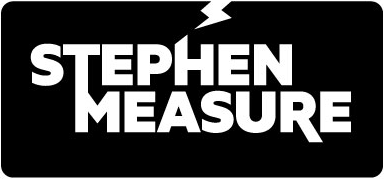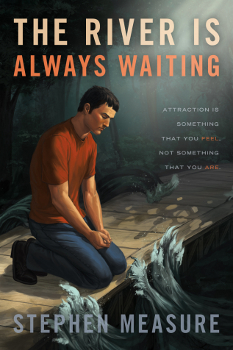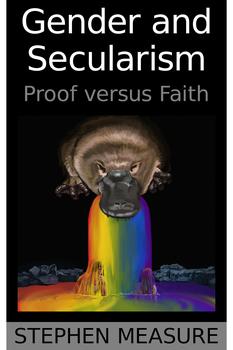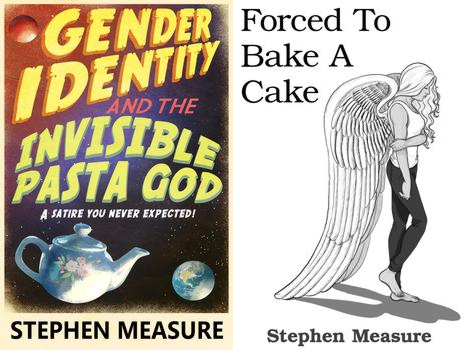On Sabbatical
December 26, 2024
To every thing there is a season, and a time to every purpose under the heaven.
It's now been eleven years since I released my novel, The River Is Always Waiting. Since then I have written dozens of stories and essays, many of which I've released in collections such as A Disbelief in Demigods, which was released last year and targets the absurdity of gender ideology. It contains many of my latest (and I think many of my best) stories and essays. If you are unfamiliar with what I have to say, that would be the best place to start.
In past years, between essays or stories, I'd step away from writing now and then, often for months at a time, but I've entered a season of my life where I need to take an extended break—I'm calling it a sabbatical—so I can focus my attention on other areas of my life that need it at this time.
I do expect to write again, but it probably won't be for multiple years. Of course, what I expect to happen and what actually ends up happening can at times be very different, so we'll see how it goes. But, in the meantime, you might find me posting occasionally on X (Twitter), at least on those (hopefully rare) days when I forget that arguing with people on social media isn't a very productive use of my time.
Ten Years of 'The River Is Always Waiting'
January 15, 2024
Ten Years of "The River Is Always Waiting"
In December of 2013, ten years ago last month, I first released “The River Is Always Waiting”, a novel I had spent multiple years constructing. I’ve been asked over the years why I chose to write this book, particularly given how uncomfortable the subject matter is. The answer is that I fundamentally disagree with the way our society talks about same-sex sexuality. I see the way our society handles it as profoundly wrong and misguided. So, more than a decade ago, I came up with a strategy of how to best communicate why I thought our current approach was so wrong-headed, and “The River Is Always Waiting” is the result.
Avoiding Extinction
January 1, 2024
At a minimum, we should not live in a way which, if followed universally, would result in the extinction of our species.
Remember this when deciding whether or not to have children.
The Voice of the People
December 16, 2023
A politician who refuses to accept the voice of the people, as expressed through their election results, cannot be trusted with political power.
The World Does Not Revolve Around You
July 19, 2023
Expecting your “identity” or “self-expression” to be treated by others as reality is incredibly arrogant and self-centered.
The world does not revolve around you.
Identities Are Not Innate
July 17, 2023
Identity is neither innate nor immutable. It is a personal belief and is capable of change.
Identities can only legitimately be granted protected class status if they are claimed as religious because religious freedom is the only protection available for unprovable beliefs.
A Disbelief in Demigods
May 20, 2023
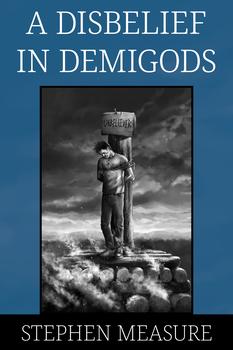
I've written tens of thousands of words about gender identity, and some of my best satires and essays on this topic are now compiled into a single volume, available today as an Ebook with a paperback version coming shortly.
A De Facto Sin
April 29, 2023
Misgendering is a de facto religious sin.
But a sin is only a sin to those who belong to a religion that claims it’s a sin.
For nonbelievers in gender identity, misgendering is not a sin. It’s just describing reality accurately.
The Limitations of Science
April 28, 2023
If you want ultimate truth, find a religion.
If you want objective proof, turn to science; but you must understand the limitations of science. The meaning of life and the nature of ultimate reality are not provable. That is the realm of religion. If anyone claims they can prove such things through science, then know you are dealing with a religious wolf in scientific sheep’s clothing.
The Phrase 'Systemic Racism' Is Deceptive
April 6, 2023
When someone speaks of “systemic racism”, understand that the “system” they are criticizing is a society based on the principles of individual liberty and legal equality. Using the word “racism” to describe this “system” is deceptive. “Racism” implies purposeful action based on racial prejudice. It is false to claim that our “system” of individual liberty and legal equality today is racist.
Yes, some lingering effects of past racism unfortunately still remain; but those who claim we should solve “systemic racism” are claiming that solving the lingering effects of past racism is so important we should set aside the principles of individual liberty and legal equality in order to do so. I completely disagree with this position, which I believe is both unjust and also inevitably destined for failure.
The best—and only—way to justly solve the lingering effects of past racism is the colorblind application of the principles of individual liberty and legal equality. It will not fully solve the problem today, nor tomorrow, but it is the right approach to this, and the right foundation for a free and just society.
Persuasion, not Coercion
April 1, 2023
Honor, virtue, and righteousness are spread through persuasion, not coercion.
There Is No Valid Proof of Gender Identity, And There Never Will Be
March 25, 2023
There Is No Valid Proof of Gender Identity, And There Never Will Be
While I am glad journalists are highlighting the flaws in psychological studies about gender identity and I view this as valuable work and am happy it’s being done, I am taking a different tack here. Because even if every one of these studies were executed flawlessly and even if the results they claimed to reach were accurate, those results still would not justify the way psychologists are trying to use them. My argument is simple: It is impossible for psychology to prove that the “gender” of gender identity is real.
Gender identity believers declare that “gender is different than sex” and that our gender identity is our inner sense of what our “gender” is and represents something innate and immutable about ourselves, something core to our being as a person. But what exactly is this “gender” they are speaking of? It isn’t helpful to provide their definition because their definition of the word often doesn’t match the way they actually use it, so let me try to describe it. We start with our physical body. Okay, that’s obvious. We can see it. We can touch it. It’s material. It’s provably there. Now imagine an incorporeal something around that physical body, an aura, a manifestation of a human soul, a twirly mist, something immaterial, something transcendental. And this transcendental gender that surrounds each of us, so its believers claim, has a masculine or feminine aspect to it, or both, or neither, or something entirely unrelated to masculine/feminine. And our gender identity is our internal sense of what that transcendental gender is.
My Self-Identity
March 14, 2023
I self-identify as a human with the sufficient wisdom to determine whether or not someone else’s identity is part of provable reality. This identity of mine is based on an internal sense of who I am as a person and is critically important to me.
And using this wisdom, which I identify as having, I have determined that gender identity is not part of provable reality.
Gender identity believers therefore have two legitimate choices:
- Affirm my identity and agree that gender identity is not part of provable reality.
- Agree with me that “identity” isn’t a magic backdoor around the burden of proof and they can therefore demand I provide proof of my truth claims.
Alternatively, they could take the illegitimate route of claiming that it’s only possible to use identity to prove truth claims that they believe in, but that would only demonstrate that they are not engaging in this discussion in good faith and instead are trying to use deceit and flawed arguments to force their beliefs onto others.
Psychology and Its Limitations
March 10, 2023
If there actually is a transcendental realm of identity that exists, in the same sense that physical reality exists, then it will not be psychology that discovers it because they lack the means to do so.
Psychology deals with humans and how they interact with reality. A patient’s discomfort about reality is not proof of the supernatural, nor is it proof that reality is not what it seems. It is simply an indication that that particular patient is uncomfortable with reality. If a psychologist is doing their job, they will help their patient come to terms with reality instead of trying to convince the entire world to pretend that reality is something that it isn’t. The entire world is not their patient, nor are we obligated to take part in their patient’s therapy.
Within Secularism, Unprovable Defaults to False
March 6, 2023
The statement “I am transgender” includes unprovable truth claims about reality. Within secularism, unprovable truth claims about reality default to false; therefore, within secularism, the statement “I am transgender” has to be false.
This means that within secularism there are no people who actually are transgender. There are only people who wrongly believe they are.
If those who believe they are transgender wish to remove the adverb “wrongly”, they should claim their belief is religious because religious beliefs are exempt from secularism’s requirement for proof. But religious freedom is a two-way agreement. When you exercise it, you agree that others don’t have to treat your belief as true.
The Attractiveness of Taboo
March 4, 2023
The fact that something is taboo often makes it attractive, and yet humans have an innate need to justify themselves, always believing they are good and therefore what they do must be good as well. And so we force taboo things—which we found attractive because they were taboo—to become normal and thereby lose their taboo, which causes them to lose their attractiveness. Yet there is always something even more taboo to attract us, until we normalize it and are forced to continue our search for more and more extreme pleasures.
If we were wiser, we would allow the taboo to remain taboo.
Review: 'Into the Headwinds'
February 23, 2023
Review: "Into the Headwinds"
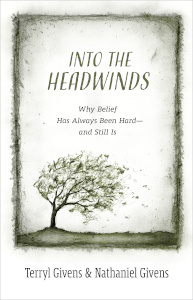
Wisdom is of great value to me, so I feel incredibly blessed to live in a time when we have access to thousands of years of human history in which to find it: the records of prior civilizations, the lives and writings of great men and women, philosophies, religions. The wisdom of the dead surrounds us. All we have to do is be willing to seek it out and to listen. But the living have wisdom to share as well, and in that spirit I can recommend the Givenses’ recently released book, Into the Headwinds: Why Belief Has Always Been Hard—and Still Is, an insightful defense of religious faith.
Provable Reality, Cold and Indifferent
February 17, 2023
Provable reality is cold and indifferent. It doesn’t care about your happiness, your mental health, or what makes you more or less likely to commit suicide. Provable reality simply is. It doesn’t care about you at all, or about me, or about anyone else. As content to rule over a barren rock drifting silently in the void of space as it is to reign over a warm planet teeming with life and intelligence, provable reality simply doesn’t care.
Warmth, love, mercy; purpose and meaning—seek those elsewhere. But if you want that which holds sway in our secular neutrality, that which all can be compelled to accept, then you have met your cold mistress; acquaint yourself with her indifferent grip.
Psychologists Cannot Expect Mass Delusion
February 11, 2023
An expectation of mass delusion is not a valid mental therapy technique. Psychologists have no right to expect the world to “affirm” the gender identity of their patients. Psychology is supposed to be a secular profession. It must be grounded on provable reality. Religious beliefs can—and should—be accommodated, but only if the patient understands that they are religious beliefs and that no one else is obligated to treat them as true. It’s a psychologists job to help their patients come to terms with that reality. Many psychologists today, far too many, are failing miserably at their job.
Psychology's Unjustifiable Intrusion
February 10, 2023
It is no more possible for a psychological therapy session to prove someone is part of a physical category like biological sex than it is for it to prove that Russell’s teapot is orbiting unseen out in space.
Inventing an incorporeal concept like gender identity and claiming it should override a physical category like biological sex is an unjustifiable intrusion into aspects of reality that psychology has no business making claims about.
Psychology and Provable Reality
February 10, 2023
If psychology is not based on provable reality, then it is indistinguishable from religion.
Gender Identity Is Trying to 'Pass'
February 10, 2023
Gender identity is a religious belief trying to “pass” as secular.
Bypassing Proof Through Artifice
February 1, 2023
Creating an unprovable incorporeal concept like “gender” and claiming it overrides a physical concept like biological sex is an attempt to use artifice to bypass the requirement for proof. This must not be treated as legitimate.
Physical, Mental, Emotional
January 31, 2023
Biological sex is a physical category. People are assigned to physical categories based on physical evidence. There is no possible mental measurement that could assign someone to a physical category.
And trying to assign someone to a physical category based on mental health claims (“It makes him happier!”) is an emotional plea, not a rational argument. It ignores the impact this action would have on others. They matter too.
Proof of Failure
January 21, 2023
A psychological study that reports some psychologists made people “happier” with a fantasy than with reality is not proof that that fantasy is true. It’s proof that the psychologists involved utterly failed at their job.
A Secular Right
December 10, 2022
We have a secular right to not treat unprovable beliefs (like gender identity) as true.
Downstream From Sexual Identity
November 30, 2022
Same-sex marriage is downstream from sexual identity. If you dislike the way our society thinks and talks about same-sex marriage, then change the way our society thinks and talks about sexual identity.
A Flawed Perspective
November 26, 2022
It seems to me that one of the chief flaws of progressivism is its absurdly warped sense of perspective. It wastes time swatting at mosquitoes while a grizzly bear is gnawing on its leg.
The Difference
November 25, 2022
The difference between “You should do that” and “I’m going to force you to do that” is the difference between Heaven and Hell.
Gender Identity Is Not a Literal Thing
November 12, 2022
If gender identity is a real literal thing, why would you assume everyone would have the gender identity they want to have? Not everyone has the biological sex they want to have. If gender identity is as real as biological sex, why wouldn’t some also have an unwanted gender identity?
But instead, everyone coincidentally has the gender identity they want to have, and that’s because gender identity isn’t a real literal thing—it’s just a wish, a fantasy. It’s just the expression of someone’s deepest desire, a desire which cannot be granted by reality so we are expected to grant it ourselves despite reality.
Review: 'Irreversible Damage'
October 11, 2022
Review: "Irreversible Damage"
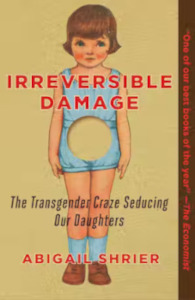
Abigail Shrier’s Irreversible Damage: The Transgender Craze Seducing Our Daughters is a book that only a woman could write. More than that, it’s a book that only a mother could write. I highly recommend this book for everyone, but in particular for every parent, especially those like me who are raising daughters. Trust me: Read it. It’s important.
Self-Identity Is Inherently Unprovable
September 17, 2022
If a truth claim about reality relies on self-identity, then it is inherently unprovable. Believing in it, therefore, is an exercise of faith.
This applies to both gender identity and sexual identity. Both are based on self-identity and therefore are faith-based, not secular.
'What Is a Woman?' Answered
September 7, 2022
'What Is a Woman?' Answered
How should we as a society decide what is and what isn’t part of our shared reality? Because every society has a shared reality. It is inevitable. Consider something as mundane as traffic laws. In some nations, people drive on the right. In other nations, people drive on the left. Right or left doesn’t really make much difference, but what makes a difference is this: Everyone has to agree what is right and what is left! We can’t have people deciding “their truth” is that right is left or left is right. That would make our traffic laws useless. We all have to have one shared understanding, one shared reality, upon which our laws and policies can be based.
It is the same for all concepts, including the words “man” and “woman”. If we as a society are going to have laws and policies based on these concepts, then we need to have a common understanding of what these concepts actually are. No “my truth” or “your truth”, we need a shared reality.
But today, when it comes to “man” and “woman”, we clearly don’t agree on how to define the words. Two opposing definitions are in common use, one proof-based and one faith-based.
It's Gender-Obscuring, Not Gender-Affirming
August 18, 2022
It's Gender-Obscuring, Not Gender-Affirming
The phrase “gender-affirming care” is religious terminology. The “gender” this phrase refers to is the unmeasurable, unfalsifiable concept of gender identity, wherein someone tells you they are male, or female, or non-binary, or two-spirit, or gender-fluid, or whatever the latest fad is, and you’re supposed to simply believe them. They could be wrong. They could be lying. You don’t know! But that’s okay because you have faith, and if someone self-identifies as a particular gender, then they must be right … right?
I, for one, lack the faith required to believe that.
Review: "What is a Woman?"
June 9, 2022
Review: "What is a Woman?"
When future generations read the history of this bizarre phase our society is going through, they will chuckle with incredulity to learn that, after centuries of conflict between religion and secularism, when secularism was threatened in the first decades of the 21st century by a faith-based movement, it was religious conservatives who rose to defend it.
Because, make no mistake, Matt Walsh’s argument in “What is a Woman?” is a secular one. He is not talking about God, or angels, or visions, or prophets, or anything religious. He is not talking about faith. What he’s talking about is proof. He’s talking about empirical evidence. He’s talking about science. Matt Walsh, a religious man, is defending secular reality.
Let me start by highly recommending this documentary. It is creative, well put together, entertaining, and most importantly it effectively demonstrates how ridiculous gender identity sounds when discussed in a secular (i.e. proof-based) context.
There Can Be No Demigods in Secularism
March 24, 2022
There Can Be No Demigods in Secularism
The confirmation hearings for Judge Ketanji Brown Jackson to the United States Supreme Court recently had the following disturbing exchange:
Senator Blackburn: Can you provide a definition for the word ‘woman’?
Judge Jackson: Can I provide a definition?
Senator Blackburn: Yeah.
Judge Jackson: I can’t.
Senator Blackburn: You can’t?
Judge Jackson: Not in this context. I’m not a biologist.
Bisexuality Is a Self-imposed Problem
January 17, 2022
Bisexuality Is a Self-imposed Problem
While wasting time reading politics on Twitter, I read that a teenage child of a conservative politician had publicly declared they were “bisexual”. I won’t mention names because children shouldn’t be dragged into politics and also because it doesn’t actually matter. What matters is the general situation: Here’s someone who has taken public stances for traditional morality, and look, here’s their child taking the opposite stance.
This is the kind of gossip that is often accompanied by snide comments conveying a sense of vindictive karma. “Let’s laugh at this wrong-headed person who just smashed into the brick wall of reality.” It’s along the same vein as the ghoulish comments made by the uncharitable when an outspoken COVID-vaccine opponent gets infected and, tragically, dies.
Except, that’s really not the correct analogy for this situation. A better analogy would be this: “Here’s a prominent Baptist preacher, and here’s his child who has decided to convert to Buddhism.” And really, what’s the story there? It’s fodder for plenty of internal family drama, sure, but why is that any of our business? And it’s the same with this situation. You have an individual who has one belief system, and you have their child who has (hopefully just temporarily) decided they’d rather follow a different belief system. It’s a family religious conflict, where a child who has been raised in a formal religion is being pulled into the trendy informal religion of our day. Family drama? Oh yes, lots. Any of our business? Not at all.
Converting the Two-Spirit
September 22, 2021
When multiple nonsense beliefs collide, the absurdity becomes impossible to miss.
My latest satire: "Converting the Two-Spirit"
A progressive therapist struggles to convince a teenage white girl she is not allowed to identify as a two-spirit.
The Psychologist
August 18, 2021
My latest dark satire: "The Psychologist".
The psychologist claims to have authority over reality, but reality disagrees, and an innocent tomboy will pay the price.
A Principal's Conundrum
August 5, 2021
My latest short satire: "A Principal's Conundrum".
A progressive principal is faced with the impossible question of how to handle the two-spirit gender identity in a public school.
The Freedom to Not Believe
July 17, 2021
The Freedom to Not Believe
Everyone must have the freedom to not believe.
If that statement seems anti-religious to you, then you aren’t thinking widely enough. To believe is not always a positive thing. Some beliefs are wrong after all. And when a belief is wrong—when we believe a belief is wrong—we must have the freedom to not believe it.
Now, if something is provable, then that is a different matter. But everything I will discuss here, all of the beliefs, all of the truth claims, all of them are unprovable. Which means that all of them are based entirely on faith.
In my last satire, “The Coming Out”, Meghan’s mother asks her the question: “What is a Catholic priest?” The question is a simple one, but if you ponder the answer, and if you consider it from both a Catholic and a non-Catholic perspective, I think you will be able to better perceive the societal regression the LGBT movement represents. And I’m not talking about morality here. Yes, the moral problems caused by that movement are concerning, but they are not as devastating as the attack on freedom the LGBT movement represents, an attack on our freedom to not believe.
The Coming Out
July 8, 2021
I decided to publish "The Coming Out", my latest short satire, right here on my website to make it as easy to read as possible.
When Meghan comes out to her mother as a pansexual, it doesn't go how she expected.
Progressivism, You Gullible Fool
July 5, 2021
Oh Progressivism, you gullible fool. In 2016 a woman claims she is a lesbian. Then in 2021 she claims she is a man (and therefore “straight”). And there you are in both cases, nodding your head right along like an idiot, demanding no proof, just taking her word for it. And when 2026 rolls around, what will she claim to be then? What truth claims will she demand you blindly accept? It doesn’t matter. Whatever it is, you’ll believe it, you gullible fool.
Oh Progressivism, you gullible fool. You display such faith in something that doesn’t even bother to call itself a religion, like a girl putting out on a date without even being taken to dinner first. “But he loves me! He said he loves me!”
You gullible fool.
Minor News: New Cover for "Fitting In"
July 3, 2021
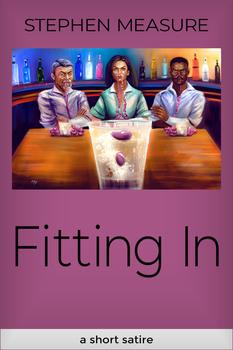
Originally released as the last story of "The Wrong Sort of Stories", "Fitting In" is a short satire that deserved a better cover, so I gave it one.
Freedom From Super-Religion
March 24, 2021
Freedom From Super-Religion
Definition: Super-Religion
A religious movement that pretends to be non-religious, thereby allowing its faith-based beliefs to be imposed on other religions and on secularism itself.
Example: The LGBT movement.
An Absurd Claim
“The fact is, any and all anti-LGBTQ+ language in any school’s polices should ban them from NCAA competition.”
Organized Religion vs a State-Backed Faith-Based Movement
March 9, 2021
The reason why the LGBT movement has proven such a challenge to organized religion is because the conflict has wrongly been interpreted as religion vs secularism when it is actually religion vs religion.
Gender identity is a faith-based belief that contradicts provable reality and as such it has no business being anywhere near secularism. Sexual identity, on the other hand, does not currently contradict provable reality because it is only an interpretation of it, so believers in sexual identity have the right to argue for its usage within secular society*, but organized religion has an equal right to be part of that conversation.
This is not creationism vs evolution in early 20th-century America. This is the Huguenots vs the Catholics in 17th-century France. The Huguenots stood little chance against the state-backed religion in their day, and we stand as little chance today unless we correct our understanding of what is actually going on. Organized religion can coexist with science, no problem; but organized religion cannot coexist with a religious movement that misrepresents itself as science in order to gain the official support of the state and effectively become the state-backed religion. We’ve seen this conflict before. We know how it will end.
* [Update 06/16/2021] I went too far in this prior statement. Yes, sexual identity is less egregious a violation of secularism than gender identity because at least it doesn’t directly contradict provable reality like gender identity does, but sexual identity is still an attempt to create an invisible construct that people are expected to believe in based on nothing more than faith in someone else’s words. Yes, you have the right to try to persuade our culture to treat the presence of same-sex attraction as a meaningful part of someone’s being, just like I, in contrast, argue that its presence should be treated as meaningless (because it is). However, you do not have the right to demand everyone believe a truth-claim about yourself that you cannot prove, and sexual identity therefore can never be legitimately used as a way to categorize people within secularism unless empirical evidence is discovered to prove its existence and thereafter that empirical evidence is used to identify everyone’s sexual identity instead of self-identity. But that will never happen because sexual identity, like vampires and werewolves, doesn’t actually exist in provable reality. It is nothing more than a faith-based interpretation of that reality, and everyone, therefore, is justified to reject it in favor of a better interpretation.
Without a Deference to the Rules, There Can Be No Game
March 6, 2021
What is more important, having your favorite team win one specific game, or honoring the rules of the game and thereby allowing future games to take place? There are those who claim that you should fight, fight, fight, never conceding a loss for your team. Always there is some excuse why the game wasn’t fair. Always there is some excuse why the other side cheated. Never was there any intention of honoring the rules if it meant accepting a defeat. If the rules say your team lost, then you condemn the rules. If the referees decide against your team, then you demonize the referees, fighting and fighting to pressure them into overriding the rules and giving your team the win.
But who wants to play a game when neither side will ever concede defeat? In the end, the game stops, replaced by just the fighting, which escalates until one team literally destroys the other.
We have seen this again and again throughout history. A fixation solely on power. An abandonment of principles. It never ends well. Why must we continue to relearn the mistakes of the past? Why can we not accept the wisdom of the dead?
Secularism Needs to Protect Us From Faith-Based Non-Religion
February 27, 2021
Secularism, as it is commonly understood today, is only capable of protecting us from control by organized religion. It isn’t capable of protecting us from control by faith-based non-religion.
This is very troublesome given that we live in a world where an increasing amount of people are abandoning organized religion yet obviously not abandoning faith-based beliefs entirely (Exhibit A: gender identity). Our society, clearly, must reconsider what it understands secularism to be.
Secularism is not non-religion. Secularism is proof. It’s time for society to drop any expectation of antagonism between secularism and organized religion specifically and replace that expectation with a general preference within secularism for proof over faith. Only that principle can protect us from control both by organized religion and also by faith-based non-religion. Only that principle can allow secularism to truly be secularism.
Minor News: Social Media Policy Change
February 27, 2021
I keep bouncing back and forth regarding how and what to announce. On the one hand, I like to share my thoughts and updates about my work and this website, but on the other hand, I don’t want to clutter people’s inboxes with trivial stuff. But on the other other hand, “trivial” is social media’s middle name, so I guess there’s no harm to announce the less substantial stuff there.
So, starting with the post after this minor news update, I’ll announce all posts I make here on social media, no matter how trivial, but I’ll send emails to my mailing list for only the more substantial items like new essays, stories, or eBooks along with the more important news updates.
Minor News: New Contact webpage and new MeWe page
February 15, 2021
Moving forward, I will share minor news items only on my website instead of announcing them via social media and my mailing list. These will be preceded with the prefix: “Minor News:”. I will continue to announce more substantial news items (new essays, new stories, or other news of note) as I have done before.
I have added a new Contact page with an explanation of how to ask me public questions as well as how to reach me about business matters.
I have added one more social media site: MeWe. I only use social media to announce my news and share my book covers, not for any other communication.
A Non-Religious Theocracy
January 9, 2021
A Non-Religious Theocracy
In the sixth season of Star Trek: The Next Generation, there is a two-part episode called “Chain of Command” where Captain Picard, the starship captain of the USS Enterprise, is captured by the Cardassians, a hostile alien race on the verge of war with the Federation. Seeking military intelligence, the Cardassians interrogate Captain Picard, torturing him in an attempt to break him. One of the tactics the interrogator uses against Picard is to shine four bright lights into his face and ask how many lights he sees. When Picard answers that he sees four lights, the interrogator tortures him, insisting there are five lights despite there only being four. The goal is to coerce Picard to accept whatever the interrogator claims reality to be, even when it directly contradicts what Picard himself knows to be true. This torture technique continues through various scenes until the final confrontation between Picard and his interrogator, where the interrogator has lied and claimed that the Enterprise has been destroyed, that Picard has been reported dead, and that he now faces a lifetime of torture unless he cooperates. Once again the four lights are shined in Picard’s face and once again he is asked how many lights he sees. There is a dramatic pause here where the audience is left to wonder if Picard will cling to reality or if he will bend to the tyranny of the interrogator; but before Picard can answer, he is rescued, and as he leaves the interrogator, he defiantly declares for the last time: “THERE ARE FOUR LIGHTS!”
Real-Gender vs Woke-Gender
December 5, 2020
Real-Gender vs Woke-Gender
In my last essay, “If Gender Identity Isn’t a Religious Belief, Then It’s Really, Really Stupid”, I demonstrated how gender identity, which could be completely respectable as a religious belief, is utterly ridiculous as a secular belief.
One of the things I talked about in that essay is the “What is a woman?” game, and I’ve decided to dive deeper into that topic here because I believe I now have an even better resolution to that game than I settled on in my last essay.
As a reminder, the “What is a woman?” game is simple. After a gender-identity believer says something foolish about gender like “some men have periods” or “some women have penises”, a rational individual will respond with the question “What is a woman?” And the game begins.
If Gender Identity Isn't a Religious Belief, Then It's Really, Really Stupid
November 7, 2020
If Gender Identity Isn't a Religious Belief,
Then It's Really, Really Stupid
Over the years, I believe I’ve presented a very consistent message that gender identity is best understood as a religious belief. I even titled a collection of my thoughts on this topic as “Gender Identity Is a Religious Belief That I Don’t Believe In”, and this is also the main argument of my essay “How to Talk to Progressives about Gender Identity”. But here’s some personal behind-the-scenes insight: My wife really hates it when I say this.
It’s not that she doesn’t understand why I describe gender identity as a religious belief, but that’s not the way believers in gender identity talk about it or (presumably) think about it, so she thinks it’s wrong for me to call it that. And as I think more about it, I think she’s probably right. It’s probably not my place to dress up the beliefs of others to fill in the gaps in their logic. I call gender identity a religious belief because that’s the only way it makes sense. But what if it’s a belief that simply doesn’t make sense? What if it’s just really, really stupid?
The Protest-Riots of 2020
July 30, 2020
The single image that best captures the essence of the protest-riots of 2020 would be this: A white protester screaming incoherently into the face of a tired black police officer.
And one of the most important lessons I hope everyone is learning from all this insanity is to never, ever, ever vote for a progressive mayor. Because if a city's government isn't willing to protect its citizens and their property from a rioting mob, then the government isn't running the city, the rioters are.
Do Not Judge Based on Skin Color
June 27, 2020
You should not judge anyone based on skin color ... including yourself.
An End to Racial Divisiveness
May 30, 2020
The most effective way to end racial divisiveness is to stop dividing people by race. In other words, to stop categorizing ourselves based on our skin color and to stop thinking of others that way as well. "Us" vs "Them" has been a source of human conflict for as long as we have separated into "Us" and "Them", and the most effective way to end that conflict is to end that separation.
Race is an example of a separation that doesn't need to exist. It is not an important characteristic. We should stop pretending that it's relevant, and we should start ignoring all demands to continue pretending that it is.
A Moral Duty to Help Others
March 23, 2020
We learn through scripture that where much is given, much is required. Another way we hear this phrased in our day is: "With great power comes great responsibility." The underlying truth is that we're expected to put what we've been blessed with to good use: our talents, our time, our energy, our wealth and resources.
We have a moral duty to help others. This responsibility starts within the walls of our own home. From there, with our footing stable, we should reach out, helping our community, our city, our state, our nation, and even, if we're fortunate enough to be able to, the whole world.
This is a duty that cannot be forced. The goodness inherent in it comes from our willing choice to personally sacrifice. Our focus should not be on whether or not others are fulfilling this moral duty. Our focus should be on whether or not we ourselves are.
Nature Doesn't Care If It Offends You
March 7, 2020
Nature doesn't care if it offends you. Nature doesn't care if you wish it were different. Nature simply is. It has been such since long before you were here, and it will continue being such long after you are gone. You can shout, you can cry, you can scream your entire life away, and then, when your end comes, nature will assimilate your body back into itself, completely oblivious to a single complaint. Or, alternatively, you can accept the reality of nature as it is, even if it isn't exactly the way you wish it were, and you can find the beauty, the peace, and the joy it contains for you in the finite time you have here.
It's your choice.
Paradise Cannot Be Forced
February 29, 2020
Paradise cannot be achieved by force. Trying to do so destroys the desired end through incompatible means.
An Onramp to Nowhere
February 20, 2020
Consider a freeway onramp. One minute you are traveling at city speeds, then you turn onto the onramp and accelerate, eventually reaching sufficient speed to safely merge onto the freeway. The onramp has a purpose: It allows drivers to successfully transition from city speeds to freeway speeds.
But what if there were no freeway to transition to? What if the onramp ended abruptly in a solid concrete wall? You turn onto the onramp and press down on the gas pedal, going faster and faster until *crash*.
This is a fitting analogy to illustrate how ridiculous it is to suggest that same-sex dating (and kissing, etc) should be accepted by religions that consider same-sex sexuality to be morally wrong.
Wisdom
February 15, 2020
Wisdom is not claimed. It is demonstrated.
Suicide Is a Tragic Mistake, Not a Weapon
February 1, 2020
Suicide is a tragic mistake, not a weapon.
We should never use someone's suicide as a weapon in the fight for our point of view because doing so creates an incentive for others to repeat that same tragic mistake.
Suicide is a tragic mistake, not a weapon, never a weapon.
The Dishonor of Breaking Your Commitment
January 18, 2020
There is no honor in leaving your spouse of years because you want to chase something that attracts you more. It doesn't matter what gender that something is. The choice is selfish and dishonorable.
And it's morally repugnant for society to cheer when sexual identity is used as an excuse for dishonorable choices like this. Would they cheer as loudly if a man left his wife for another woman? Then they shouldn't cheer when he leaves her for men either. A commitment is a commitment, and a betrayal is a betrayal.
Slippery Slopes
January 11, 2020
After someone slides down a slippery slope they were warned about, they seldom look back and say, "Gee, I guess those who warned me about that slippery slope were right. I should listen to them next time." Instead, they usually say, "Who cares? I like it down here anyway."
The End of a Common "Family-Friendly"
December 21, 2019
Another company falls
You’ve likely heard the disappointing news about the Hallmark Channel. As more and more movies and TV shows have started introducing same-sex sexuality and gender identity into their stories, Hallmark has been the only large entertainment company I’m aware of that could be trusted to not do so. That’s why it was so surprising when a commercial appeared on their channel featuring a same-sex relationship. Viewers were upset and a boycott was threatened, so Hallmark removed the commercial. This in turn resulted in the progressive tidal wave of rage rolling over Hallmark, and they shortly crumbled, turning their back on what their brand represented to a large portion of their audience by promising to restore the same-sex commercial to their channel and implying they would start to introduce same-sex sexuality (and presumably gender identity as well) to future shows.
The Kobo eBookstore Banned All My Books Today
November 27, 2019
Although Amazon is far and away the market leader for eBooks, I try to make my writing available on other eBookstores as well so it will be as accessible for interested readers as possible. For years this has included the Kobo eBookstore, and I had over two dozen eBooks available there as of yesterday.
But then I released my essay “How to Talk to Progressives about Gender Identity” and submitted it to Kobo and other eBookstores yesterday. As a result, I received an email from Kobo today informing me they are terminating my account and deleting all my work from their platform.
For those who purchased or downloaded any of my work from Kobo in the past (there hasn’t been many), I’m not sure if they will delete my eBooks from your Kobo eReader/App or not. I recommend you contact Kobo to find out.
Otherwise, as of today, my work is still available on the other major eBookstores including Amazon, Apple Books, Barnes & Noble, and Google Play.
Why Do We Help Make Sin Inevitable?
November 27, 2019
Why Do We Help Make
Sin Inevitable?
How we interpret human sexuality is entirely up to us, so why do we choose to interpret it in a way that makes sin inevitable?
Who I am writing to
I write these words to those who agree with me that same-sex sexuality is morally wrong. If you believe otherwise, you are certainly welcome to continue reading, but please understand you are not the intended audience and I’m not writing this to persuade you. It is to those who agree with me about same-sex sexuality that I ask: Why do we help make sin inevitable? Because that’s what sexual identity does, yet we still continue to interpret human sexuality according to its flawed rules. Why?
How to Talk to Progressives about Gender Identity
November 26, 2019
How to Talk to Progressives
about Gender Identity
You have the right to be met in the neutral ground of the secular sphere, where provable reality is given precedence over unprovable beliefs like gender identity.
Definitions
Let’s start with some definitions:
Gender Identity: Gender identity is the belief that our gender is based on identity rather than biological sex. In other words, it’s the belief that a biological man, with XY chromosomes and male anatomy, is actually a woman if he feels like he’s a woman. Except, that’s not all, gender identity also includes the idea that a person can be “gender-fluid”, meaning that their gender actually changes back and forth. And that’s still not all, gender identity doesn’t actually define how many genders there are and what those genders are. People can claim to be “non-binary” or any gender label they choose to adopt. Within gender identity, there is effectively only one rule: When someone claims to be a gender—any gender—you are required to believe them.
New Cover for "What Our Helmets Let Us See"
November 25, 2019
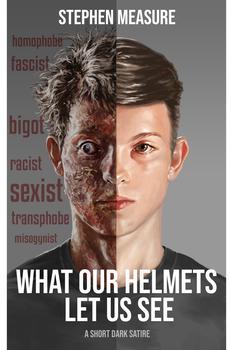
I first released this short story a year and a half ago. It's time this very short and very dark satire got a cover that truly expressed its meaning.
Role Models and Sexuality
September 7, 2019
The X-Files and the Scully Effect
In my teenage years, I was a big fan of the X-Files. I enjoyed the intrigue and the mystery, the bizarre stories, and especially the characters: Fox Mulder and Dana Scully. Mulder was the believer. He believed in aliens. He believed in monsters. He believed in pretty much anything that people were expected to not believe in. Scully on the other hand was the nonbeliever. With her background in science and medicine, she was skeptical of everything that could not be empirically proven. Her character evolved as the show went on, with her eventually becoming the believer when Mulder left the series, but the best seasons of the show in my opinion were those where the dynamic was Mulder's belief vs Scully's skepticism.
I bring this up because of a phenomenon known as the "Scully Effect". Scully was a strong, independent woman. She was a medical doctor with a background in science. As young girls watched her character on the TV show, they saw a role model they could pattern their life after, and there are many women today who credit her for inspiring them to pursue careers in science, medicine, or law enforcement.
The Competition to Define the Words 'Man' and 'Woman'
August 24, 2019
Here is the situation as I see it: There are two words, 'man' and 'woman', and there are two concepts competing to provide the definition for those words: biological sex and gender identity.
Biological sex, we know. It has been around longer than any of us have, and it is found everywhere in nature. Biological sex is based on physical, observable, empirical evidence. It is provable: If I claim to be a man, I can prove it through empirical evidence. And it is falsifiable: If I claim to be a woman, you can disprove my claim through empirical evidence. Yes, there are the rare cases where, due to birth defects, physical ambiguity exists making the distinction between man and woman less clear, but those cases themselves are provable through empirical evidence. In every case, biological sex is provable as well as falsifiable. It is something we can know—actually know—about each other.
Unwanted Proof
July 13, 2019
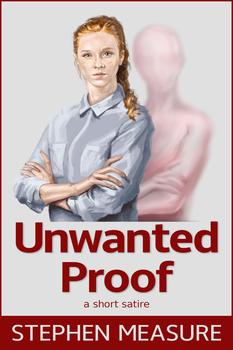
I have dozens of story ideas I've written down over the years just waiting for me to find time to write them. Unfortunately, with a full-time job and family as well as other obligations, lately I've had depressingly little time to write. So the stories sit there, gathering mental dust until I finally get around to writing them.
The Religious Evangelism of the Rainbow Flag
June 15, 2019
In the town where I live, one of our local stores has a large cross on its roof. When you see this cross rising prominently above the store, the religious beliefs of the store’s owners are clearly communicated. This same message is delivered when you see someone wearing a cross around their neck. In both cases, the symbol silently declares, "I believe in Christianity." It is a subtle form of evangelizing, a silent witness of what someone believes.
And at times it goes beyond subtle. At times the display of the cross is aggressive enough that the message delivered goes beyond "I believe in Christianity" and becomes "I believe in Christianity, and you should believe in it too."
Which brings me to the subject of the rainbow flag. This symbol seems to be everywhere nowadays, displayed not only by activists, but now by ordinary run-of-the-mill businesses and government offices as well. But the rainbow flag is not just a pretty decoration; it is a symbol, and symbols have a meaning, a message they deliver. And what is the message being delivered by the rainbow flag? It is a declaration of allegiance to two specific progressive religious beliefs.
All 'The Wrong Sort of Stories' Short Stories Released as Individual Stories
February 6, 2019
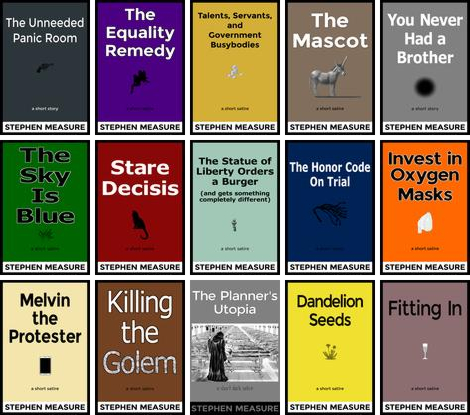
Following the example of The Planner's Utopia, which I released as an individual story last year, I have released all the other stories from The Wrong Sort of Stories as individual stories as well.
It's Depressing ...
December 27, 2018
There is more than one way to view the circumstances of our lives, more than one way to think about ourselves; and the narrative we choose to believe about ourselves has a powerful impact on how we will navigate life's circumstances. That's why it's so depressing when a fellow believer chooses to identify as "gay". The declaration itself is technically ambiguous (Are they talking about attraction, or are they talking about action? There is an eternity of distance between the two), but their unfortunate choice to embrace same-sex sexuality as a core part of their identity rather than to regard it simply as a wrong behavior they desire yet reject, puts them on a path that almost inevitably will lead to their rejection of the truths we once shared.
Related essays:
The War Between Identity and Behavior
Identity Shells and How They Are Used Against You
The Planner's Utopia
November 8, 2018
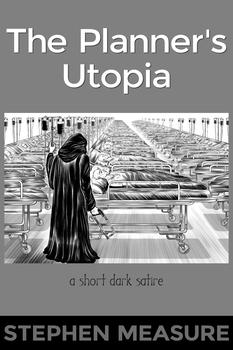
I first released this story as part of my short story collection, The Wrong Sort of Stories. A literary depiction of the horror spawned by those who prioritize equality-of-outcome over freedom, The Planner's Utopia deserves to stand alone, so I am rereleasing it as an individual short story.
Gender Identity and the Invisible Pasta God
August 22, 2018
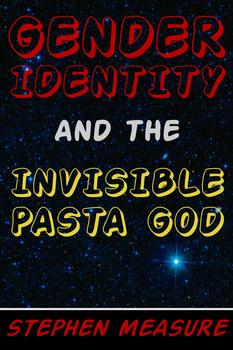
Pastafarianism, the worship of the Flying Spaghetti Monster, is a fake religion created to mock real religions, which makes it the perfect tool to point out the religious beliefs within progressivism that pretend to be secular—the most blatant of which is gender identity.
Gender Identity Is a Religious Belief That I Don't Believe In
August 21, 2018
Note: Gender identity is the belief that our gender is based on identity rather than biological sex. In other words, it is the belief that a biological man, with XY chromosomes and male anatomy, is actually a woman if he feels like he is a woman.
* * *
I am a religious man. I know a religious belief when I see one. And I'm telling you that gender identity is a religious belief. It is a religious belief I personally don't believe in, but it is a religious belief nonetheless.
* * *
If something is proven through empirical evidence, then I can believe it for scientific reasons. On the other hand, if something cannot be proven through empirical evidence, or even if it contradicts current empirical evidence, I might choose to believe it for religious reasons, or I might not. Gender identity falls into the latter category of things that cannot be proven. Not only is it unprovable through empirical evidence, it actually contradicts empirical evidence, and I therefore cannot believe it for scientific reasons. I could, however, choose to believe it for religious reasons, but I do not. Gender identity is a religious belief I reject.
How to Decrease Divisiveness and Increase Civility in Our Society
July 23, 2018
Our society is being torn apart by bitter divisiveness and raging incivility. Politics, now the center of our lives, has filled our hearts, its toxic unending demand for change—always more change!—as ubiquitous as the air we breathe. And our political opponents? We dehumanize them into mere obstacles, nothing more than road bumps impeding society's progress toward our vision of utopia. "The ends justify the means," we self-righteously tell ourselves as we wage wars of personal destruction. And anger and rancor escalate and escalate and escalate.
But it doesn't have to be this way. Politics doesn't have to cloud every interaction in our lives. Civility doesn't have to be taboo. People can be people, not always divided into political allies or foes, but simply people. And some means can be rejected, their cost too great to justify or to ever actually lead us to the ends we desire. But to achieve this, to decrease the divisiveness and to increase civility in our society, we cannot continue as we have been. We need to make room for those who disagree with us, room to live, room to breathe, room to remain human despite different opinions of life and its meaning. Here are three steps you can take to provide others that room:
What Our Helmets Let Us See
February 13, 2018
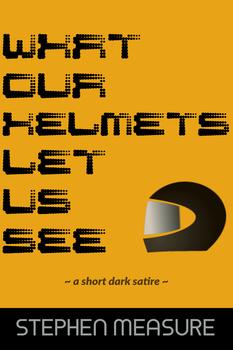
Bigot, racist, homophobe, transphobe, sexist—so many different words, words which one day held separate meanings, words which today are all used to say the same exact thing: monster. Horrible, hideous, humanity-stripped monster.
A Hollow Politics
February 12, 2018
Your inability to advance your cause without portraying those who disagree with you as monsters bespeaks the hollowness of your politics, a core of dust. And your future, ashes.
Forced to Bake a Cake
November 14, 2017
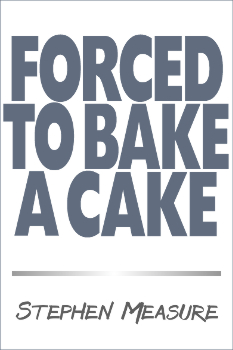
We are blinded by our politics, completely blocked from seeing any other point of view. We don't want to see. We don't want to understand the viewpoints of others.
I Oppose Wrong Beliefs, Not People
November 13, 2017
I oppose wrong beliefs and ideologies, not people. Had I walked in another's shoes, I might believe and do as they believe and do. I don't oppose people. I seek to persuade them. Wrong beliefs and ideologies are forever wrong, but a wrong person can choose to become right.
Sexual Identity Is Bogus and Same-sex Sexuality Is Wrong
September 18, 2017
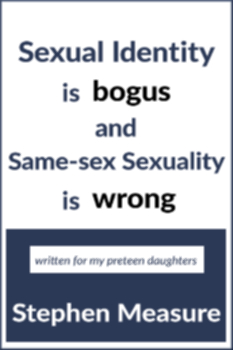
It's been almost a year since my last post. During this past year, my family moved and I had to set writing aside until things settled down. My mind has not been idle, however, and I have a lot of stories on the way now that I'm back to writing again.
Writer's Dementia
September 21, 2016
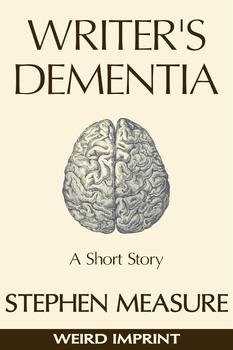
All of the stories I've published so far can more or less be considered message fiction. I still have plenty of "message" I want to say, but I'm at the point now where I'm ready to start introducing stories that are just stories, no deep message parsing required.
Religious Freedom and Sexual Identity
September 13, 2016
Religious freedom and sexual identity are incompatible. Religious freedom requires the ability to treat a behavior as wrong, but sexual identity declares that some behaviors are so intrinsic to one's identity we should not have the freedom to treat them as wrong. Our society can have either religious freedom or it can have sexual identity. It cannot have both.
Related essay:
How Anti-Discrimination Laws Are Used to Discriminate Against Religion
Dear College Students
August 27, 2016
Dear college students, as you sit in class, and your professor starts preaching about privilege, or microaggressions, or heteronormativity, or safe spaces, or gender identity, or sexual identity, or intersectionality, or colonialism (in the 21st century!), or social justice, or the exaggerated and misleading gender wage gap, or claims that "racist" is a synonym for "white" or "sexist" is a synonym for "male", or uses the word “cisgender” in a serious manner or the phrase "trigger warning" without an accompanying punch line, or suggests it's reasonable to memorize personal gender pronouns for everyone you meet, or blames everything on "rape culture" and blames "rape culture" on you, or speaks against religion even though they themselves (just like everyone else) hold religious beliefs, or expects people who don't believe in magic to believe a biological male is a woman, or prioritizes feelings over freedom of speech, or speaks against discrimination while simultaneously discriminating against viewpoints they disagree with, or claims every weather occurrence (in any direction) is evidence of global warming, or suggests that racial segregation of college students is an appropriate idea (in the 21st century!), or lectures on affirmative consent without being honest enough to wear a "Sex Police" badge, or justifies mob intimidation to shut up speakers they don't like, or claims there's moral virtue in spending other people's money, or basically makes the classroom feel indistinguishable from what you'd hear at a Democratic/Socialist pep rally—when your college professor does this, I want you to remember something: You don't have to take them seriously. Being employed by a university doesn't make them right, and it doesn't make them wise, and it doesn't mean you have to take them seriously.
Untolerated Rejection
August 1, 2016
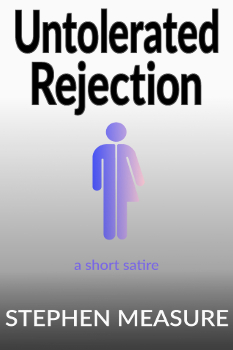
It's been a while since I've published a new story. It feels good to be releasing something new once again, and I have a number of stories planned for the coming months. I've actually been working on a larger story that will be very different from what I've done in the past, but this little satire popped in my head one night and demanded to be told. I was able to finish the initial rough draft in a matter of hours, which is unusual for me. After some time to edit and revise, it's now ready to be released.
How Anti-Discrimination Laws Are Used to Discriminate Against Religion
May 21, 2016
Imagine if "shopping day preference" was added to anti-discrimination law. That's innocuous, right? I mean, who would want to discriminate against someone just because of their shopping day preference? And then the following Sunday, Andrew, who fancies himself a Sunday Shopper, strolls down Main Street, visiting store after store, as is his habit, when he comes across a door that won't open and a sign that says "Closed". Furious, Andrew calls his lawyer and a lawsuit is filed claiming discrimination against Andrew on the basis of shopping day preference. Andrew, you see, claims to be a Sunday Shopper.
The store-owner is confused. She has nothing against Andrew. She'd be happy to serve him on Monday, or Tuesday, or Wednesday, or Thursday, or Friday, or Saturday. But Sunday, for her, is different. Her religion calls it the Sabbath, and she doesn't want to work on that day. She's not trying to discriminate against Andrew. If he wants to shop on Sunday, then that's his business; but she doesn't want to be involved, not on a Sunday. She wants the freedom to live her life as she sees fit, and to not be involved with activities—such as shopping on Sunday—that she considers to be wrong.
Magical Words
May 19, 2016
You can prove a man's height. You can prove his weight, his blood type, his skin color, his biological sex. But you can't prove a man is a woman, not without the mystical power of "Gender Identity", not without the magical words "I am a woman".
And what if I don't believe those words are magic?
Related essay:
Divine Authority and "Gender Identity"
Divine Authority and "Gender Identity"
May 18, 2016
Everyone has a religion. Yes, I know some people dispute that fact. They claim that because they don't go to church or read leather-bound scriptures, they don't have a religion. But they are incorrect. Religion isn't church. Religion isn't scriptures. Religion is truth. More specifically, our religion is what we accept as truth—the truth about morality, the truth about the meaning of life, the truth about reality itself. Yes, everyone has a religion, and there is no better proof of this than the supposedly secular but actually quite religious ideology of "Gender Identity".
Have you ever deconstructed your beliefs? Have you ever broken them down to discover where they came from, what they are based on? If you have, then what I'm saying here should not come as a surprise to you, but if you haven't, then now is a good time to start. Down in the midst of all our thoughts and beliefs, you will find there are two main types: secular facts and religious truths.
Psychologists and Biology
May 12, 2016
Psychologists do not hold precedence over biology. The fact that a man feels more comfortable while pretending to be a woman doesn't mean he is a woman. It just means he is a man in need of a better psychologist.
Related essay:
Some Connected Thoughts about Gender
"Transgender" Is a Religious Term
May 11, 2016
"Transgender" is a religious term used by a religion I don't believe in.
Related essay:
Opposition to "Gender Identity" Is Driven by Logic, Not Religion
Opposition to "Gender Identity" Is Driven by Logic, Not Religion
April 29, 2016
Many are asking the question "Can religious freedom coexist with 'LGBT rights'?", not realizing the question is a false one that therefore cannot be answered. The two sides here are not religion versus "LGBT rights". The two sides are actually just two separate religious camps, and the phrase "LGBT rights" is nothing more than a battering ram being used by one camp to force its moral views onto the other.
But that is a topic for another day. Instead I want to point out that, while the acronym "LGBT" might make it appear the behaviors it represents are all bundled together and any opposition to those behaviors is also bundled together, that's actually not true. The L, G, and B stand for the words "lesbian", "gay" and "bisexual", all of which are identity shells used to force the acceptance of same-sex sexuality, and it is the religious belief that same-sex sexuality is wrong which causes opposition to that behavior. Yet, the T is very different. T stands for the word "transgender". And what is a "transgender"? A believer in "gender identity" claims a "transgender" is someone whose true gender doesn't align with their biological sex, which means that the religious opposition to that would be the religious belief that … that what exactly? That biology matters? That we shouldn't encourage behaviors which, if followed by everyone, would cause human extinction?
The Cognitive Dissonance of "Gender Identity"
April 20, 2016
Gender, if divorced from biological sex, is pointless. That's the true core of our society's conflict over "gender identity" today. It's the cognitive dissonance. We're expected to believe that gender actually matters (and therefore we should bother paying attention to it) and to simultaneously believe that gender doesn't matter (and therefore people can claim to be whatever gender they want, despite their biology). It's us staring up at a bright blue sky while activist bullies are screaming in our ears that it's green, and the whole time Darwin is watching from afar, snickering.
"A Modest Proposal ..." Available as Ebook
April 14, 2016
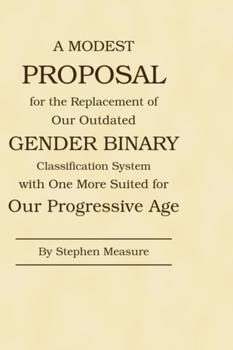
Reason has left the building. Doesn't it seem that way lately for the topic of gender? This is "the sky is blue", "water is wet", and "the birds and the bees" territory. This isn't religion (which is about the unseen and therefore open to opinion). This is reality. And the reality is that reason, truly, has left the building.
Skin Color Doesn't Matter
April 11, 2016
If telling someone their skin color prohibits them from the hair style of their choice isn't an example of blatant racism, then what is the point of even having the word? We are not our skin color. Skin color doesn't matter. It neither defines nor limits us. Those who disagree, who persist in viewing the world through race-tinted glasses, who judge words by the color of the speaker, who judge actions by the color of the doer, who demand that freedom itself be dictated by the color of our skin—those are today's racists.
I Am the Absence of Homophobia
March 28, 2016
Things were different in our youth, were they not? Do you remember playing "smear the queer"? Can you imagine playing that game today? And the words we used to describe men who had sex with other men—pervert, faggot, and worse. We built a wall, didn't we? A wall of separation between "us" and "them". We created an other because we needed an other because we couldn't bear the thought of there not being an "us" and a "them". We built a wall. And the wall kept us safe. The wall kept us comfortable. The wall kept us separate.
Now, the old insults are gone, lost in the history of forbidden words and phrases, replaced by safer words such as "gay" and "homosexual". We're so careful today, so cautious. We're so desperate to avoid offense. Yet, although the insults might be gone, the wall still remains. Oh, we won't insult "them". We would never dream of it! But they are "them" and we are "us". They are different! They are other! They must be other because we are not the same, no, definitely not the same. We would never insult "them", but we are "us" and they are "them", and the wall remains, as high and wide as ever. We depend on it. We hallow it. We bend our moral standards to accommodate it, to accommodate a wall we ourselves created, a wall we so fear to lose. And the wall keeps us safe. The wall keeps us comfortable. The wall keeps us separate.
Discrimination Against Moral Beliefs
March 25, 2016
Self-righteous activists, who claim to oppose discrimination, are advocating for laws and policies that discriminate against those who hold different moral beliefs.
Giants Beget Dwarfs
March 16, 2016
If I have seen further, it is by standing on the shoulders of giants, whom I criticize for not seeing as far as I, standing on their shoulders, am able to see.
A Modest Proposal for the Replacement of Our Outdated Gender Binary Classification System with One More Suited for Our Progressive Age
March 10, 2016
(with a hat tip to Jonathan Swift)
As our society continues its progress into uncharted (and surely good!) territory, we continue to find ourselves stymied by outdated, unnecessary concepts left over from pretechnological ages. Left unchecked, this constant backward clinging to obsolete wisdom will do nothing but stall our growing (and surely good!) ability to mold reality into a shape that better fits our individual preferences.
And so, as others have done in times past, I shall now therefore humbly propose my own thoughts, which I hope will not be liable to the least objection.
Of all the concepts blocking our absolute control over reality, none are more stubborn or more threatening than the continual, nonstop (and frankly quite aggravating) idea that gender should be based on biology. We have put earnest effort into eradicating this vile ideology, even employing anti-discrimination laws to criminalize wrong thinking. Yet, aided by natural forces and the obstinacy of so-called "common sense", the ideology remains, proving it isn't possible to simply redefine gender, we must completely remove and replace it instead.
Gender Is Not a Religious Concept
March 3, 2016
Religion is about the unseen. Gender is not. When gender-identity missionaries knock on Mother Nature's door, she unleashes Darwin to chase them off her lawn.
Corrupted Wisdom
February 27, 2016
Our society seeks wisdom and guidance from those who've been corrupted by fame and fortune. This won't end well.
Behavior Identities
February 20, 2016
Behavior identities (also referred to as identity shells) are manipulative, artificial labels placed around behaviors to force us to accept what we otherwise wouldn't. When you see a behavior identity being used, replace the false label with the behavior it is hiding and notice how much clearer the situation becomes.
You are being manipulated. Doesn't that bother you? Because, frankly, it pisses me off.
It's Not Fun to Say No
February 12, 2016
Because it's not fun (or comfortable) to tell someone no, our moral principles tend to become the lowest common denominator of those we associate with. Oh, that more of us could have the strength to tell family and friends we love them and that's why we expect better of them!
The Discouragement of Wrong Behavior
February 6, 2016
Everyone treats wrong behavior differently from right behavior. There's nothing remarkable about that. All of us do it, each following our own definition of right and wrong. Whether the personal disapproval of individuals or the legal consequences of government, the effect is the same: a discouragement of behavior we consider to be wrong.
There are, unfortunately, some who try to hide certain behaviors behind a facade of identity in an attempt to place those behaviors out-of-bounds for disapproval; but that manipulative tactic is a topic for another day.
Some Connected Thoughts about Gender
January 28, 2016
Think, please think. Why do we have separate restrooms for men and women? Why do we not have everyone use the same restroom? Why do we have separate sports teams for men and women? Why do we not have everyone try out for the same team? Why do we even have the words "men" and "women" at all? The reason should be obvious. Open your eyes and think!
* * *
There are two competing definitions of gender. One is based on physical reality, while the other is based on feelings and wishes. Why are our elected representatives writing laws that force us to follow a definition that contradicts reality? And more importantly, why do we continue to vote for politicians who enact such ridiculous laws? What does that say about us?
* * *
Mother Nature's definition of gender is based on physical reality. She views it as an extremely important characteristic, a characteristic essential to the survival of the human race; and she has no tolerance for foolishness.
Anti-Discrimination Laws
January 12, 2016
Anti-discrimination laws, which in the past were used to protect the equality of people, are now being used to impose the acceptance of ideology. "Thou shalt not discourage this behavior"—that is the message of anti-discrimination laws today. It's time for such laws to be relegated to the past. As long as we allow them to remain, they will continue to become more and more corrupted.
Soft yet Steady Resistance
December 31, 2015
This essay is for those, such as myself, who see the world according to the Behavior View despite the crushing social pressure in favor of the Identity View. To understand these two opposing viewpoints on sexuality, I recommend you read my essays "The War Between Identity and Behavior", and "Identity Shells and How They Are Used Against You".
The Identity View sees the world clouded by identity shells. An identity shell is a false outer layer of identity placed around a behavior in order to hide that behavior and force its acceptance. Identity shells are designed to change the conversation from whether a behavior is right or wrong to whether a person should be accepted or rejected (with their behavior then forced to be implicitly accepted as well).
The most obvious example of an identity shell in society today is sexual identity. The same-sex movement claims that to oppose same-sex sexuality (the behavior) is to oppose "gay people" (the identity shell) because it claims that the people and the behavior cannot be separated, that the people are the behavior. What manipulative nonsense! Attraction is something that you feel, not something that you are, and behavior is always a choice.
Identity Shells and How They Are Used Against You
December 3, 2015
In mythology, Hercules was a half-mortal, half-god with immense strength. Born from one of Zeus' many illicit affairs, Hercules was hated by Zeus' wife, Hera, who tried to kill him but failed due to his great strength; so, instead of confronting his strength directly, she caused madness to fall upon him; and then, in that mad state with his sense of reality twisted, Hercules used his strength to murder his own family.
You see, you don't have to be stronger than your opponent. You don't have to be faster, or smarter, or wiser. You don't have to face them directly at all. The only thing you have to do is warp their sense of reality. Cloud their vision. Hide the simple truth of reality behind an artificial concept that isn't really there, causing them to mistake good for evil and evil for good. Then you can sit back and watch as they themselves tear their world apart (using their own strength!) while you laugh and laugh and laugh.
That's an apt analogy to describe what is going on in our world today, a world whose own goodness is being used to tear itself apart. As I discussed in my essay "The War Between Identity and Behavior", there are two opposing worldviews about sexuality: the Identity View and the Behavior View. I recommend you read that essay for the full description of the two different worldviews, but here is a brief summary: The Behavior View is based on the reality that some behaviors are simply wrong and should be rejected no matter how difficult that might be. The Identity View, on the other hand, is ruled by illusion. At its core is the idea that people are their attractions, that humanity is divided into three separate subspecies (gay, straight, and bisexual), that morality itself must be bent to fit within the confines of the Identity View's flawed vision. The Identity View is a fantasy, a powerful fantasy used to manipulate our society, and it has proven very effective these past years. Many of those who hold it are good people, strong people, people whose strength cannot be confronted head on; so instead, like Hercules, their reality has been purposefully twisted so that now they are using their own strength against themselves.
The War Between Identity and Behavior
November 23, 2015
There is a war being waged within our culture today, two opposing worldviews about sexuality, both of which offer different visions of right and wrong. One of these worldviews is compatible with the moral beliefs of my religion, the LDS Church, and other religions that share those moral beliefs. The other worldview fights against us.
The Identity View
Let's discuss the latter first, for this is the worldview that holds sway in the world today. This is the worldview used by the media as they report the news. This is the worldview used by celebrities, politicians, and other elite. This is the worldview used by judges as they twist the law into unrecognizable shapes. The worldview I'm speaking of is the Identity View.
According to the Identity View, people are defined by their attractions, with humanity divided into what are essentially three separate subspecies: gay, straight, and bisexual. Imagine three gigantic buckets with everyone assigned to a specific bucket, the buckets' walls reaching high into the sky, consigning us to our predetermined fate. You were born in a bucket, and you will die in that same bucket. No escape. No possibility of change.
Why It's Worse
November 11, 2015
Those of us who believe sex is only appropriate between husband and wife have grown accustomed to living in a society that says the opposite. Premarital sex is common in movies, books, and TV shows. It's become a lazy way to indicate that a fictional couple is getting serious. Are writers today even capable of showing emotional intimacy in the absence of sex? It doesn't appear so.
Indeed, we live in a society where the assumption today is that sex before marriage is normal and those who choose otherwise are abnormal (and perhaps backwards). Those of us raising children worry about the choices our children will make about sex when such negative influences are pulling them in the wrong direction.
Yet humanity never stands still, and the moral landscape has shifted even further. Now it's not sex before marriage that is the main source of friction within society. Now it's same-sex sexuality. And seeing this change, it's natural to ask the question: Is it any worse? We've already been dealing with widespread acceptance, even encouragement, of sex before marriage. Is dealing with same-sex sexuality any worse?
Yes, it's worse. Allow me to explain why.
What If That 'When' Had Never Happened?
November 9, 2015
In the personal history shared by those who call themselves 'gay,' watch carefully for the word 'when.' Yes, some claim there never was a 'when,' but notice how often there was:
"I learned I was when ..."
"I discovered it when ..."
"That was when I realized ..."
Then ask yourself this question: What if that 'when' had never happened? What if they had never gone through that experience, or what if they had, but had processed it differently?
The acceptance of same-sex sexuality, encouragement of same-sex relationships, and celebration of same-sex marriage will have an effect. We are creating countless additional possible 'when's.
Think about what that means.
We are human—so flexible, so full of possibility.
Think about what that means.
Paying the Price
November 4, 2015
We are paying the price today for mistakes made by prior generations. In like manner, our children and grandchildren will one day pay the price for the mistakes our society is making today.
The Word 'Sexist'
October 26, 2015
If the word 'sexist' is used to describe someone who treats one gender differently than the other, then the word is meaningless and should be retired. The word only has meaning when it refers to someone who treats either gender intentionally worse. If nature is sexist, then nothing is.
Racial Strife
October 19, 2015
As long as those who profit from racial strife are allowed to remain in positions of power and prestige, there will always be racial strife.
Gender Identify Is a Self-Defeating Ideology
October 5, 2015
Gender identity—the idea that a man is a woman if he identifies himself as such—is a self-defeating ideology. If gender can be shrugged on or off like a garment, then it is meaningless. And if gender is meaningless, why bother identifying with one?
Why does he want to be referred to as she? He wants that because the word "she" means something today that he wants for himself; but if he were able to convince everyone that he can become she simply by saying so, then suddenly the word "she" won't mean the same thing it does today. The definition he covets would be destroyed by his own success, leaving him with nothing.
The Wrong Sort of Stories
September 29, 2015
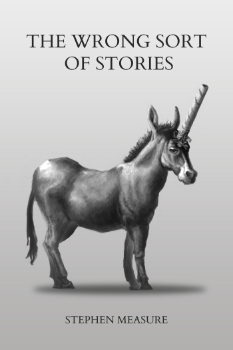
The world has gone mad. Reality itself must be denied if one wishes to fit in today. "The Wrong Sort of Stories" is a collection of stories and satires that describe this madness and argue against it. Some are humorous. Some are dark. Some are deservedly brutal.
Logic
September 28, 2015
There is no perfect argument, no logic that cannot itself be torn down by logic. It all sits upon shifting sands of subjectivity, its inputs and weights constantly changing. That which is considered proven today will be disproven tomorrow. Logic does not lead to truth. It only leads to temporary conclusions.
The Reality of the Situation
September 24, 2015
Much confusion has been sown on the topic of same-sex attraction in recent years, causing many to lose sight of what is actually going on. Please allow me to sum up the reality of the situation in two related points:
A disagreement over moral behavior is being falsely portrayed as a disagreement over people, allowing the emotional weight of the civil rights legacy to be forced into what is actually a religious conflict over sexual morality.
Too many today pretend that our sexuality is predetermined and completely unaffected by outside influence. They refuse to see that it's not only our culture that is capable of change (for good or ill); it's us ourselves.
You might disagree with me about the immorality of same-sex sexuality. Religion is about the unseen after all, and everyone has a religion, their underlying core of right and wrong; so, it might be that your religion, your moral core, simply disagrees with mine. But the two points I said above are not a matter of religion. They are a matter of reality.
Our Halfway State of Absurdity
September 21, 2015
Earlier this summer I flew across the country and had the pleasure of going through airport security. The baggy pockets of my jeans seemed threatening, so the TSA agent gave me a brief pat down, which included running his hand right up into my crotch. There was a male TSA agent there and a female TSA agent there. The pat downs were professional and strictly same-sex. But why were they same-sex? Why do we not allow male TSA agents to give pat downs to women? Actually, let me ask another question first: What if the male TSA agent who gave me my pat down is someone who chooses to engage in same-sex sexuality? Would the TSA have prohibited him from giving me a pat down? Now let me return to my prior question: Why exactly do we not allow male TSA agents to give pat downs to women?
Let's jump to a different, related topic. When learning about the dorm rules at a local public university, I was surprised to hear that the university prohibits a man from sharing a dorm room with a woman. I was pleasantly surprised, but I was surprised nonetheless.
But then I started thinking: What is the logic here? What are the consequences? Does this university prohibit sex in its dorm rooms? No. Does this university prohibit same-sex sexuality specifically? No. So a same-sex couple could share a dorm room, but a boyfriend and girlfriend could not. Isn't that discrimination?
Some Connected Thoughts about Religion
September 18, 2015
Everyone has a religion. We might not all go to church, but everyone has a religion. And all of us (even those who pretend to have no religion) believe that our religion is the right one.
* * *
Religion is a set of beliefs about morality and the meaning of life. Sometimes these religious beliefs are formalized through a church, but more often today they are not. And in our day, informal religions—fluid and crowd-following—are imposing their religious beliefs onto formal religions more and more.
The State cannot force an equilibrium between religions. Anything it does only tips the scale from one side to the other. When it bans prayer, it promotes those religions that disbelieve in prayer. When it forcibly legalizes same-sex marriage, it favors those religions that believe same-sex sexuality is moral over those that do not. Any action the State takes to weaken one religion will always strengthen another. The State should therefore do as little as possible. It should allow the people to believe their own beliefs and live their own lives. It should allow religions—whether formal or informal—to rise or fall on their own merits.
Flayed
September 14, 2015
I'm entering the final stretch of the publication process for my short story collection, where I'll finish assembling the eBook and will start working with the printers on the paperback and hardback formats. If everything goes as expected, my collection should be released the last week of September.
There are a number of essays I've been working on while my short story collection has been moving toward publication, and I expect to release some in the next couple of weeks. But for now, here is the final poem I wanted to share before my collection is published. It is a little darker than the others, but it is what it is: "Flayed".
The Argument in My Way
August 25, 2015
My short story collection has now been proofread and the manuscript is ready for typesetting. The cover illustration is in process and the cover design is arranged and will follow after. I'll start on the eBook files later this week. All in all, a mid-to-late September release date still seems likely.
Here is another poem I wanted to share in the meantime: "The Argument in My Way".
Outside, Standing on a Stake
August 8, 2015
My short story collection is moving forward steadily. The stories are complete and are being proofread right now. There are fifteen of them, nine previously released and six new. I plan to release the collection in both eBook as well as paperback formats. The cover illustration is being worked on, and the typesetting is planned for the end of the month. The final arrangement I must make is for the cover design itself, but based on how things are going, I'm projecting a mid-to-late-September release.
In the meantime, there are a few poems I've wanted to write that I plan to do while I wait. Here is the first: "Outside, Standing on a Stake".
Killing the Golem
May 16, 2015
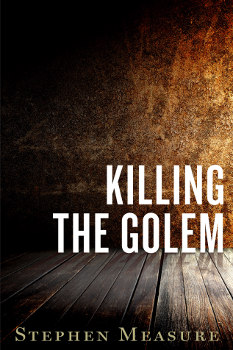
Imagine a world where slavery, segregation, and racism had never existed. Imagine a world where interracial marriage had never been prohibited. Imagine a world where skin color had always been seen as insignificant as hair color, where the word discrimination still had a neutral connotation, where the idea of discriminating between one thing and another had not become tainted by the injustice of racism.
Imagine yourself in that world and ask yourself this question: Would same-sex marriage exist?
No, it would not.
On Honor
February 12, 2015
These words are directed at men. Society today offers us uncertainty in how we should live our lives. Concepts such as honor have been discarded by the wayside. My purpose here is to stand against that uncertainty and explain how a man can be an honorable man. Women should be honorable women as well, of course, and I'm not saying that the responsibilities discussed here don't also apply in some ways to them. But I don't think it's my place to tell a woman how to be a woman, so I won't. I feel no such unease, however, in telling a man how to be a man—more specifically, in telling a man how to be an honorable man.
21st-century feminism and the hookup culture
As I said, society today offers men uncertainty on how we should live our lives. There are numerous ideologies and lifestyles competing for our attention, but many of them are contradictory and few of them are good. Consider 21st-century feminism and the hookup culture. These two are entangled in a bitter conflict over sexuality, and men are caught in the crossfire. Some people support one side. Some people support the other side. Frankly, I hope they both lose. There is no point in putting a thin veneer of respectability over the noxious hookup culture, a lifestyle fixated on momentary pleasures; and there is no time to waste on the nonsense offered by 21st-century feminism, an ideology that views men as a threat and seeks to diminish them. Must a consent form be signed and notarized prior to every one-night stand? That's not a fight I care to participate in. Too many are wasting energy fighting about whether males should be permitted to urinate on newspapers laid down in the corner of the room or if they should be trained to go outside on the lawn. I have a higher vision for men. The hookup culture only appeals to overgrown boys, and 21st-century feminism can only produce housebroken males. But I'm not interested in overgrown boys or housebroken males. What I want—what we need—are honorable men.
When the Ship Enters Rough Waters
January 10, 2015
Imagine a giant ship full of people, everyone up on the deck, socializing, talking, laughing, sharing meals together, doing business with each other, parties here and there, everyone weaving amongst each other, everyone fitting in, everyone doing what everyone else is doing. This is society.
The ship might turn to the left. The ship might turn to the right. The direction doesn't matter to the people on the deck because they are all together, and that is what matters to them—getting along, fitting in, being part of the crowd, being agreeable, doing what everyone else is doing.
Then the ship enters rough waters. It used to be stable; now it rocks wildly to and fro. And everyone is stumbling around on the deck, bumping into each other, spilling their drinks, getting sick, vomit on the deck, vomit on each other. Yet, despite the heaving of the ship, they're all still socializing on the deck, doing their best to keep their feet underneath them as the ship rolls violently back and forth. They're still talking and laughing and being together because that's all they know how to do—fitting in with everyone else, getting along, going where everyone else is going, being agreeable, not causing a disturbance. They are part of the crowd, and they are doing what the crowd is doing, and if that means they are stumbling about and sicking up on themselves, then at least they are fitting in with everyone else because that is what matters to them, that is what they know how to do, that is what they want to do.
Society's Roles
January 6, 2015
If a society wants to survive, then one of the most important roles of its men must be that of a father, and one of the most important roles of its women must be that of a mother. If a society recognizes this and has any common sense, then the most important role of its men will be that of a husband, and the most important role of its women will be that of a wife.
Stars and Black Holes
December 27, 2014
Being an emotional black hole is a miserable existence—constantly sucking in energy, a net negative on everyone around them. Fulfillment comes from being like a star instead—always shining outward, intent on being useful to others.
Creation of Persons
December 20, 2014
The greatest thing we can do is create something, and the greatest thing we can create is a person, not just the creation of their body but the development of their mind and soul as well. God feels joy at our progression, and we can feel that same joy at the progression of others.
Melvin the Protester
December 9, 2014
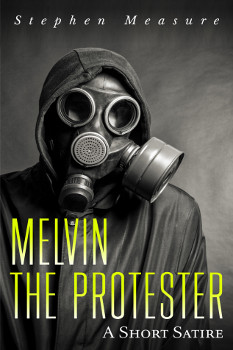
Another interruption of an interruption. "Killing the Golem" is still on its way, but in the meantime I present "Melvin the Protester", a short, fun look at a man who isn't really cut out for protesting.
New Cover for You Never Had a Brother
December 6, 2014
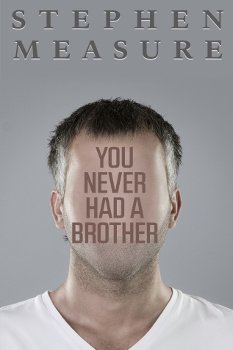
When I originally released "You Never Had a Brother", I went the cheap route and made the cover myself. I never liked it much, so I'm happy to be replacing it with this one. I've submitted the update to the relevant eBook stores, but it might be a day or two before the change takes effect everywhere.
On Genetics
November 29, 2014
It's amusing to watch the timeline of scientific studies on whether or not a particular food is healthy. One day it's great for you, then a new study comes out and says it's horrible, then another comes out and says it's not so bad, then yet another comes out and suddenly it's great again, then horrible, then great, then …
Isn't science wonderful? Actually, it is. Science is great. There's nothing wrong with recording our observations, sharing them with others, and building upon them. The problem comes with “therefore”. That's the word that gets science into trouble. The more cautious and conservative the “therefore”, the less problematic it will be. Unfortunately, a cautious “therefore” is unlikely to help a scientist win a research grant, capture the public's attention, or help the scientist further their agenda; so don't be surprised to hear wild and crazy scientific “therefore”s that push far beyond the limits of what the observations actually show.
On that note, let's turn to the topic of same-sex attraction and genetics. From time to time, the media will breathlessly report about a new study “proving” that same-sex attraction is genetic. Hopefully they won't actually use the word “proving” in their headlines since the studies never go near as far as that, but someone who only reads headlines could be forgiven for thinking that science has found a stronger link between genetics and attraction than it actually has. However, once you dig into the stories and look at the details, suddenly the situation is very different from what the headlines lead you to believe.
Why I Write about this Topic
November 28, 2014
“Why do you write about this?” With the “this” being same-sex attraction and same-sex marriage, I find the question surprising. Given the direction of society, it seems to me the reason should be obvious. This is something capable of causing massive societal change, yet some seem to think what I'm doing is equivalent to walking into the woods and kicking a random tree for no reason.
Is that what I'm doing, just kicking a random tree? That's certainly not how I would describe it. For me, it's as if my family and I are being chased through the forest by a lion. I could continue to run, but I've chosen instead to turn around and fire some carefully aimed shots.
Or to put it a different way: After my church has endured years of mortar shelling with no sign of abating, I don't think it strange that I am intent on neutralizing the attacking artillery.
This conflict was not created by me. Whether or not I bury my head in the sand, it will continue on regardless. But I choose to not bury my head in the sand, and that's why I write so much about this.
Why the Comparison Fails
November 26, 2014
Picture yourself about to compete in a footrace. There you are, crouched at the starting line, awaiting the whistle, when suddenly your opponent smashes your kneecap with a baseball bat. Then, as you writhe on the ground in undeserved pain, he goes on to win the race and pretends it was his speed that gave him the victory rather than his cheap tactics.
That's how I feel whenever someone tries to win the debate about same-sex marriage by comparing the opposition to same-sex marriage with the opposition to interracial marriage. It's a cheap shot, like a baseball bat to the kneecap. Let me explain why the comparison fails.
Imagine that John and Mike have decided to be same-sex married. They approach a wedding planner and ask for her assistance, but she declines their business because she doesn't want to participate in a same-sex wedding. Okay, let's dig into her motivations. Why did she decline their business? Is it something against John? Is it something against Mike? There's an easy way to find out. Imagine that those same individuals, John and Mike, had instead both decided to marry women. Imagine that they each approached the wedding planner separately with their female fiance. Would the wedding planner decline the business of either couple? No, of course not. She has nothing against either John or Mike. It's not opposition to people that caused her to refuse to take part in a same-sex wedding; it's opposition to behavior. It's opposition to a choice she disagrees with—namely, the choice to legally lock oneself into a relationship she views as immoral.
The Honor Code on Trial
November 22, 2014
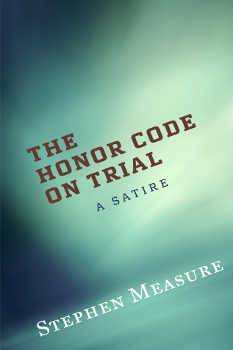
In the summer of 2012, Trinity Western University, a private university in British Columbia, announced plans for a law program. Two years later, their proposal is in jeopardy after several Canadian regional law societies rejected the admittance of TWU students and the BC Ministry of Advanced Education is now considering revoking their consent for the law school.
Deference for Doctrine
November 15, 2014
Those who follow the doctrines of the crowd do not deserve more deference than those who follow the doctrines of a church.
The Endless Field
November 8, 2014
The world is full of problems that require resolutions. There is far more work than any one person could hope to even make a dent in. Faced against the impossible demand for our attention, we find ourselves so overwhelmed we become paralyzed and lose the ability to perform the good we otherwise would have been able to do. It is for this reason that I wrote "The Endless Field".
Identifying What Just Bloodied Your Face
November 3, 2014
If you've ever been blindsided by an accusation of bigotry when you thought you were just talking about behavior, here is an explanation to help you understand what just bloodied your face.
The Shame of Past Racism
The root of it all is racism; or, more accurately, the shame of past racism. We know it was wrong. We hear about the horror of slavery and segregation, and we are shamed that it happened in our own country and by our own ancestors. We are grateful for the bravery of the civil rights movement, for the heroic men and women who took a stand and helped society turn its back on institutional racism. There is still further to go, but at least now the door has been opened, allowing us to step through once society fully accepts that skin color is no more significant than hair color. We have yet to step through that door, but look at how far we have come.
And this legacy of racism, this mixture of shame for its existence and gratitude for its waning, lingers with us today. When we hear the word bigot, we think of racists. We think of adults barring the way so children with a different skin color couldn't attend school. We think of police officers setting fire hoses against civil rights marchers. And when we hear the word discrimination, we think of racial discrimination, of segregated lunch counters and drinking fountains. We think of hotels that banned people based on skin color, of theaters that wouldn't let some walk through the front door. All of those actions were wrong, and we're grateful they have since been rejected.
Stare Decisis
October 27, 2014
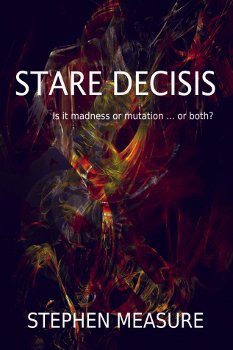
I'm supposed to be writing a story on a completely different topic, but that got interrupted by another story on yet another topic, which got interrupted by another story, which got interrupted by this story, which itself got interrupted by a very short story that I included as a bonus story at the end of this story.
That's the bright side to all the insanity going on right now with same-sex marriage: insanity spurs creativity. Put another way: all this nonsense demands satire, and the ideas are forming faster than I can write them.
Here is my latest: "Stare Decisis".
On Identity - Again
October 18, 2014
Arizona Falls Beneath the Juggernaut
As a resident of Arizona, I was disappointed by the recent court ruling that imposed same-sex marriage upon our state. Given the current direction of our courts, the ruling wasn't a surprise, but it was disappointing nevertheless. Those who have been placed in a position of honor and authority should be expected to use that honor and authority to do the right thing; and in this case, they didn't.
The result is both frustrating as well as annoying because it is both wrong as well as incorrect. It's wrong because same-sex marriage is a bad idea. My past writing explains why, but for a more comprehensive explanation, I refer you to Discussing Marriage, a website which I recommend both for the intelligence of their arguments as well as the civility of their tone. May more people learn to speak about same-sex marriage with such civility. (And may I.)
The ruling was incorrect because limiting marriage to male-female couples is not unconstitutional. If the law hasn't changed, then judicial rulings should not change either. The people might have changed, but let them prove that through their votes. That's how a democracy is supposed to work. Instead, our judiciary is disgracing itself. Their faulty rulings will not be forgotten, nor will the names attached to them.
Duty to Stand
October 14, 2014
Although we might believe the decline of society is inevitable, it remains our duty and privilege to stand against it anyway.
Our Favorite Prophets
October 2, 2014
Our favorite "prophets" are those who tell us that everything we're doing is perfectly fine. Prophets who preach hard changes? We don't like those.
Repentance
September 30, 2014
Repentance is about progress, not avoidance of punishment.
Be Purposeful
September 26, 2014
Due to the pervasiveness of Internet pornography, any man who is not taking purposeful measures to resist it is probably looking at it.
You Never Had a Brother
September 20, 2014
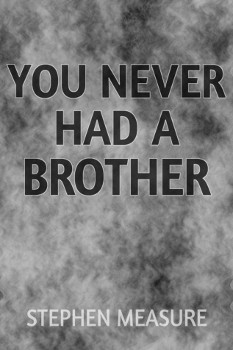
The fashionable view claims that our sexual attractions define us but our biological sex does not. Let me repeat that. The fashionable view claims that our sexual attractions—inconstant, unmeasurable feelings—define us but our biological sex—a directly observable, objectively determinable physical reality—does not. The fashionable view is wrong. No, more than wrong, the fashionable view has completely lost its mind.
The opposite is the truth. Our sexual attractions do not define us. They never have. They never will. Our biological sex, however, most certainly does. It is part of who we are. You can deny this, just like you can deny anything else; but doing so only distances yourself from reality.
And so, here is my latest short story, "You Never Had a Brother".
Communities
September 19, 2014
Being part of a community allows you to influence others within that community, but it also allows you yourself to be influenced, to come to believe and value what that community believes and values. Choose your communities wisely. Don't join any that would lead you where you don't want to go.
Daily Rhythm
September 17, 2014
We underappreciate the importance of daily rhythm, the chance to start afresh each morning, to do better than the day before. This is especially true for struggles against compulsions and addictions. Yesterday's mistakes are yesterday's mistakes; today is a new today. How beautiful the sunrise!
Two Realities
September 15, 2014
There are two realities. There is what is, and there is what we say is. We can bend the latter to our liking, but the former remains firm, and our foolishness can be measured by the distance we create between the two.
Decent Society
September 12, 2014
You can't kick the decent out of decent society. Well, you can, but the result is a society that isn't decent anymore.
Opponents and Allies
September 10, 2014
Those who oppose you need not be permanent opponents. Always leave an opening for them to become your allies.
The Mascot
August 30, 2014
Once again I find that satire says it best. I'm releasing a new story today: "The Mascot". Here is its description:
His first day at a new school, Winston discovers there's something very wrong with his classmates.
This is something I've had rattling around in my head for a while. I originally thought of it as a short humorous video, perhaps a book trailer for a forthcoming book (to highlight the theme, not the actual content), but I decided it would be fun to make it into a short story instead.
Like I did with "The Equality Remedy", I'm making this story available as a free download. Unfortunately, neither Amazon nor NOOK allow me to set the price as free, which is why it is $0.99 in those stores. (The same is true for "The Equality Remedy".) Amazon does do price matching, however, so if enough people notify them of the price difference via the link on the story's page, then perhaps Amazon will match the free price available elsewhere.
I have another short story I plan to write next. I'm not sure how I'll classify that one, literary fiction? Then it's back to working on the rough draft of "The Inner Rot", which continues to move forward slowly.
20 Truths about Same-Sex Attraction and Same-Sex Marriage
August 7, 2014
After all the words I have written about same-sex attraction and same-sex marriage, I thought it would be useful to create a list of truths to summarize the subject:
Truth #1: Same-sex sex—more specifically: same-sex sexual intimacy in any form—is morally wrong.
Truth #2: Although we should love and support each individual, we cannot celebrate or be happy about a same-sex union because, due to truth #1, we will always want them to split up.
Truth #3: The gay rights movement* is an expression of religious tyranny. At its heart is the demand that everyone must agree that same-sex sex is not a sin. Any who refuse to conform are smeared as bigots and are expected to be shunned.
Truth #4: We are not gay. We are not straight. Those labels are false and misleading. People are flexible and attraction is malleable.
Truth #5: Any man living today, had he been raised in ancient Greece or Rome, would most likely have been attracted to other men. Yes, I'm talking about you. Stop thinking that you're different. You're not. You are far more influenced by your generation than you realize. This applies to everyone, men and women. Please reread truth #4.
On Words
July 22, 2014
Imagine that a young man walked to the front of your church congregation and announced, "I'm gay!" Suppose this is a church where same-sex sex is considered to be morally wrong. This young man has just declared, "I'm gay!" But what does he mean? You know this boy. You care about him and want what is best for him. So what does he mean? Obviously he is saying that he feels same-sex attraction, but is that all he is saying? Remember, this is a church that preaches that same-sex sex is morally wrong. When he calls himself gay, what is he saying about his choices? Is he saying that he believes the teachings of the church and will therefore resist his same-sex attraction in the same way that others in the congregation, each and every one of them, are expected to resist their desires to do wrong? Or is he saying that he has embraced his same-sex attraction, that he has adopted it as his core identity, that he will live that lifestyle, that he will seek out same-sex partners, that he will engage in same-sex sex?
What exactly is he saying to the congregation? What exactly is he asking of them? Does he want support through his trials? If that is what he wants, then he will get it. But is that what he is really asking, or is he asking them to change their doctrine? Is he asking them to alter their concept of sin in order to accommodate his personal desires? What is he really saying? We don't know. We don't know because the words don't tell us. They're ambiguous, and the ambiguity is tearing morality apart. We need better words, more accurate words.
On Perspective
July 10, 2014
The world is burning down. It certainly feels that way to those of us who oppose same-sex marriage and continue to insist that same-sex sex is morally wrong despite the emotional appeals and social pressure exerted on its behalf. Yes, it's easy to feel despair as we watch institutions and standards crumble around us, yet history suggests we should not let that feeling linger. Waves rise but then fall. What seems unstoppable today is discarded and forgotten tomorrow. Every Goliath will meet a David; every Titanic will strike an iceberg; every behemoth will become a fossil; and every judicial ruling in favor of same-sex marriage will one day be considered as illegitimate as Dred Scott.
Still, it certainly is an interesting time, when MTV and Rolling Stone parrot the establishment, and those whose morals are attached to something more permanent than transient whim find themselves as the underdog counterculture. Isn't it strange? Rock music in all its varieties, once the anthem of rebels, has faded into elevator music for the trend-following horde.
But strange or not, our times can be distressing. Especially if we view the societal changes as irreversible, meaning that things will never get better. A related message is shared on the Discussing Marriage website in their "The Objection from Bandwagon" article and video. They point out that, while those in favor of same-sex marriage prefer to compare their cause to the civil rights movement, a better comparison can be made with the abortion debate, where opinion has shifted over time, proving that change in opinion is not irreversible. This comparison is especially appropriate when you step away from the same-sex marriage debate and instead focus solely on the matter of same-sex sex. Like abortion, same-sex sex is an action. And just like abortion, some people think this action is morally wrong while others disagree.
New Mailing List
July 10, 2014
For those interested in receiving email notifications of my posts along with other news, I have created a mailing list. You can subscribe here.
In related news, I have added an "Upcoming Posts" section on my "Posts of Note and Other Writing" page. If you are curious about what posts I will be sharing in the future, take a look there. My latest post was released this morning: On Perspective.
I'm also still working on "The Inner Rot", the last story of "The Ridge of Earth Collection". Repeated distractions (posts and other stories) have made the writing slow, but I'm making progress.
On Intellectualism
June 25, 2014
I am not an intellectual. That might seem strange for me to say if you think of intellectuals simply as those who are intelligent, but that's now how I view intellectuals, not anymore. It seems to me that intellectualism claims that arguments can always be compared against each other, the better argument reliably determined through reason. It's as if intellectual conflicts are like gladiator fights in an arena, where the arguments face off against each other and the better argument inevitably comes out the winner.
But that's not how things actually work. The intellectual arenas are filled with artificial obstacles, and those obstacles get in the way of the arguments, at times giving an unnatural advantage to one argument over the other, at times removing any chance for an argument to even win at all. In the end, it's not the better argument that emerges triumphant, it's the argument more suited to the obstacles of the particular arena. I see intellectualism therefore as better at awarding trophies than at discerning truth. That's why I am not an intellectual. Reason will always win in a fair fight. Unfortunately, it's rarely ever a fair fight.
Consider the example of Atticus Finch in "To Kill a Mockingbird". Despite public opposition, Atticus, a lawyer, chose to defend Tom Robinson, a man falsely accused of rape. Atticus made his case effectively, leaving no doubt that Tom was innocent. Yet, Atticus failed anyway and Tom was found guilty of the crime. Why? The two arguments entered the arena, why did the weaker one emerge as the winner?
It was the arena. When those on the jury saw the defendant, they did not see a man, they saw a black man; and their racial prejudice created an impossible obstacle for Atticus to overcome. There was simply no argument that Atticus could make that would allow black innocence to prevail in the face of white accusation, not in the minds of those jurors, not in the arena within which Atticus was forced to make his case.
On Identity
June 18, 2014
Alternate title: A plea for my allies to please stop shooting themselves in the foot.
I want to elaborate on something I said in my post last week about stewardship. In that post I indicated it was a problem for those who oppose same-sex marriage to make statements such as "gay men should be celibate." Can you see why it's unhelpful to word the situation in that way? If you can't, let me explain: The problem is that when you make statements like that, you're making an assumption about identity and are limiting people who struggle against same-sex attraction to only two choices: celibacy or not. But those two choices do not actually reflect what is at issue in this conflict. The issue is whether or not people resist their same-sex attraction. That's it. Sometimes the things we say make it appear we are asking for something very different than we actually are.
It all comes down to identity. Who are we? What defines us? Are we men and women, or are we something else? And is the way we identify others helpful or harmful to them? Does it accurately reflect their potential, or does it artificially limit their choices?
Look at it like this: Would we ever say, "liars should be mute"? Of course not. We wouldn't say that because we know better than to identify people based solely on the action of lying. Instead, we would say that people should not tell lies. We would say that people should tell the truth. Can't you see the difference? Do not identify people based on their preferred sin. Don't fall victim to the trap of preaching against people. (And yes, it is a trap. See my story "The Unneeded Panic Room".) Sin is not who we are. Attraction is not who we are. Do not debase others in that way. Don't fall victim to the appeal of short noun phrases that give a distorted picture of reality. Take the time to accurately explain your point of view.
On Stewardship
June 13, 2014
Lately I've been thinking a lot about stewardship. A stewardship is something you are responsible for, something you have a duty to care for, to develop, to preserve, to protect. Some have high-profile stewardships, significant callings in their church, positions of great responsibility in their governments. But, for most of us, our stewardships are more local, more close to us. For me, I see my stewardships as my religion, my family, and then my work, my community, and more loosely my nation and then, even more loosely, mankind as a whole.
I've been thinking a lot about stewardship lately because reading the news makes me angry; and then my frustration at the blind foolishness I see consumes me, tearing away time, energy, and emotion from my primary stewardships, making me the greatest fool of all.
I'm reminded of a talk given by Dallin H. Oaks, one of the leaders of my church (I'm a Mormon), called "Good, Better, Best." Put simply, it's possible for good things to distract us from doing the best things. It's good to be aware of what is going on. It's good to be involved in our communities and our nation. But what if that pulls us away from what is best? What if that pulls us away from our primary stewardships, from our families, from our friends?
Yet, I still feel drawn to what is going on, especially with all the craziness surrounding same-sex attraction. I look at the way people talk about it and the assumptions they make about it, and it's aggravating to me, as if millions of people were simultaneously scratching on a chalkboard together. Even those who seem to agree with me about same-sex attraction—those who agree it should not be indulged, those who oppose same-sex marriage—even they often misunderstand same-sex attraction and how we should approach it. Too often they say things like "gay men should be celibate", not seeing the trap they have created for themselves with their very words. (This trap is explained in my short story "The Unneeded Panic Room").
The Equality Remedy
May 26, 2014
I rediscovered this gem while searching through my old story ideas. The basic idea and initial sketch were recorded four years ago. When I stumbled across the story again last week, I decided to finish it. It was a fun story to write and hopefully will be a fun story to read.
The name of the short story is "The Equality Remedy". Here is its description:
Mother Nature is taken to court for being heterosexist. But will we be pleased with the imposed remedy?
I've once again been distracted away from writing "The Inner Rot". Back to work. Back to work. Back to work.
The Unneeded Panic Room
May 10, 2014
Many of us have been following the news of Brendan Eich, who was forced to resign as the CEO of Mozilla due to his past donation in support of Proposition 8 (a 2008 California initiative that declared that marriage should remain the union of a man and a woman). There has been a lot of discussion of this troubling event in the media. Unfortunately, most of that discussion has been completely beside the point. Too many in the media are focusing on the question of whether or not a CEO should be punished for his political views, but that's not the problem behind this story. All of us have a line over which, should someone pass, we will no longer accept them as part of respectable society. So, no, the problem isn't that Brendan Eich was punished for holding an unpopular political view; the problem is that Brendan Eich was punished for holding a view that I myself share. And I'm not alone in this regard. Perhaps we didn't donate to Proposition 8 ourselves, but how many of us voted for it or for equivalent laws? And how many of us would do so without hesitation again? How many of us belong to churches that oppose same-sex marriage? And how many of us would stand by those beliefs no matter the personal cost? The problem is not that Mozilla judged their CEO unworthy of it; the problem is that Mozilla made that judgment about so many of us.
This hits close to home for me because, like Brendan Eich, I work in the tech industry and am therefore at risk of the same rejection. While it's true that I publish my work using a pseudonym, the only permanent barrier that provides is one between my ego and success. The thin buffer in front of my identity is only temporary, and it will be pierced the moment someone is motivated enough to run a few web searches. Ideally this won't happen without a simultaneous interest in my work, allowing me to provide for my family in that way, but there are no guarantees.
It is interesting, however, how everything has come full circle. My novel "The River Is Always Waiting" was conceived in the midst of Proposition 8 and its aftermath. If there had been no Proposition 8, I might have never written it. If Mormons had not been so involved in Proposition 8, I might have never written it. And now, as I've been struggling for a way to explain why my novel matters and to convince people to read it, this belated backlash to Proposition 8 occurs, providing me inspiration for a short story I hope will demonstrate why this topic is important. The short story I wrote and am now releasing is called "The Unneeded Panic Room". Here is its description:
Why Do You Build What You Know Will Fall?
March 15, 2014
I published a new poem on my website: "Why Do You Build What You Know Will Fall?" Like "Not Today", I am releasing this poem into the public domain, which means that anyone is free to copy and use it in any way they wish. It is available in PDF and OpenDocument Text formats, and I also decided to make eBook versions in EPUB and Kindle formats (I added eBook versions of "Not Today" as well). One word of caution about the eBook formats: the poems are formatted a specific way and when viewed as an eBook, your eReader might not render them as designed.
It's interesting how ideas can bounce around in your head, combine with other thoughts, and then suddenly come to life. This poem isn't something that I planned to write, but it all came together around a week ago, so I got to work. I'm pleased with how it turned out.
Now I need to return to "The Inner Rot", the last short story of "The Ridge Of Earth Collection". I've completed the outline and begun the rough draft. (The rough draft is always the hardest part for me. Once I have something to refine, I can work faster.) Based on the outline, I'm guessing this will end up at novella length, but I'm hoping it won't take as long to write as "It's Not My Money" did. "The Inner Rot" is more pure story than "It's Not My Money", so I don't have to be as precise with every word. I'm hoping that will translate into a shorter writing time. I'd like to get moving on my second novel, but this must come first.
(My earliest news item from 2013 disappeared from my News page recently. This was due to a glitch in my web page code and has now been fixed, so my complete news history should be viewable again.)
Patheos Book Club Promotion
March 1, 2014
Now that "The River Is Always Waiting" has been published, my attention towards it has shifted from writing and editing to promotion. With a limited advertising budget, I've tried to target my ads as effectively as possible, and one place where I've run these targeted ads is Patheos.com, a website that presents a wide variety of religious and political beliefs through the numerous bloggers who post there. I am running ads on a handful of blogs at Patheos that are mainly read by those who I believe would be interested in reading my book.
An additional advertising opportunity provided by Patheos is its book club. The book club's webpage for "The River Is Always Waiting" went live this morning. It will be listed on the book club's main webpage for the next two weeks, and my book's customized webpage will be available for three months afterward.
Here is a link: "The River Is Always Waiting" in the Patheos Book Club.
An Honorable Man upon the Mountain
February 21, 2014
I've finished "An Honorable Man upon the Mountain" and released it in Kindle, EPUB, and PDF eBook formats. Links will be added to the various eBook stores as it becomes available. This is the sixth story of The Ridge of Earth Collection to be completed but only the second to be released. Here is a brief description:
Tolan must rescue his sisters from the shades who slaughtered his family, but he cannot save them without first finding an honorable man upon the mountain.
As with "I Would Sing", "An Honorable Man upon the Mountain" takes place in the epic fantasy world known as The Unshut World. The final story of The Ridge of Earth Collection, "The Inner Rot", will take place within this world as well.
At times when I write something, I'm actually talking about something else; but at other times, (to paraphrase Hemingway) a shark is simply a shark. When considering any symbolism to this story, please understand that I have plans to write about many topics, much more than just the topic of my first novel. Also, remember that hubris is an all-too-common flaw found throughout society, and power has always had a tendency to corrupt even the best of us.
Four More Stories Finished
January 20, 2014
I've finished four more stories from "The Ridge of Earth Collection": "Somethings Going On at the Strip Mall", "The Last Dance of the Pansy King", "Two Letters from a Gentleman", and "It's Not My Money". All four of these stories are very different both in terms of content as well as length. Of the four, "The Last Dance of the Pansy King" is the smallest at ~3000 words, and although it was trimmed a bit since its first draft, "It's Not My Money" remains the longest at ~23800 words.
The stories are done and their eBook files created (PDF, EPUB, and Kindle), but none of these four will be released at this time because they are not needed yet. I'm posting their covers, however, which provide slight hints about each story.
First Story from The Ridge of Earth Collection
January 8, 2014
The first short story from "The Ridge of Earth Collection" has now been released: "I Would Sing". Its eBook has been submitted to all the major eBook stores, and I will add links to each site as the story becomes available.
As mentioned on the webpage for "The Ridge of Earth Collection", each of these stories is specially-crafted. They are designed for specific purposes. The reasons behind this story might not yet be obvious, but hopefully as time goes by they will become more clear.
First Novel Is Now Released
December 13, 2013
"The River is Always Waiting" has been released in hardcover and eBook (Kindle and EPUB) editions, and a paperback edition should be available sometime next week. Purchase links have been added to the book's webpage and will continue to be updated as additional online retailers begin to sell the book. While it is unlikely you will find this novel shelved at your local bookstore, it should be possible to request it via special order. The hardcover ISBN is 978-1-940778-00-6 and the paperback ISBN is 978-1-940778-01-3.
If you enjoy this novel, then please consider leaving a review on Goodreads, Amazon, or your preferred book retailer or review site.
Cover Is Done
December 3, 2013
At long last, the cover for "The River is Always Waiting" is ready and can be viewed on its webpage. The book's interior is already finished, so now that its cover is done, my novel can finally be released. It should be available for sale within the next week or so.
I have also made progress with more short stories from "The Ridge of Earth Collection". The first drafts of "Something's Going On at the Strip Mall", "Two Letters from a Gentleman", and "I Would Sing" are now complete. "I Would Sing" will be the first of my short stories to be released. It should be available shortly after my novel.
Story Status
September 14, 2013
Although I completed the first draft of "The Last Dance of the Pansy King" without much difficulty, "It's Not My Money" proved to be more stubborn. More than eight-times the size of my first short story, "It's Not My Money" is actually a novella; and its twenty-plus pages of notes, recorded over multiple years, took time for me to wrestle together into a coherent whole. At over 24,000 words, the story is about a third the size of my first novel, "The River is Always Waiting", which took me years to assemble and write; so, it's not too surprising in hindsight that the first draft of this novella required a few months to complete.
Based on the feedback (and lack of interest) I received back from the query letters I sent this summer for "The River is Always Waiting", I've decided to self-publish my novel through my own publishing company. While working with a traditional publisher would have provided the benefits of time, resources, and reach, self-publishing will give me the benefits of control and schedule. Now, my novel will say exactly what I want it to say, presented in the manner that I believe is most effective; and it will be released as soon as it's ready, which should be within a couple of months. The copy-edit has already been completed—I'll be working through its results in the coming week—and the novel's cover is scheduled to be done in October. Typesetting and proofreading still need to be arranged; but I expect everything to be completed and the novel to be ready for release in November. In the meantime, I have more short stories to write. Next up will be "Something's Going On at the Strip Mall".
Beginning "The Ridge of Earth Collection"
June 6, 2013
Now that my initial query letters for "The River is Always Waiting" have been sent, I can turn my attention to the short stories I have planned for "The Ridge of Earth Collection". I have pages of notes written about the stories, and have already tentatively started one, but they now have my focus and I hope to complete their first drafts over the summer.
The first two stories I will tackle are "The Last Dance of the Pansy King" and "It's Not My Money", neither of which will require much, if any, further research. I expect to follow those two stories with "Two Letters from a Gentleman" and "Something's Going On at the Strip Mall", which will both require some individual research before writing.
My final three stories, "I Would Sing", "An Honorable Man upon the Mountain", and "The Inner Rot", all share the same research requirements and advance preparation, so I will wait to write them until after I have completed the first four, with the last to be written being "The Inner Rot" as it is the only of the seven that I would feel comfortable leaving uncompleted before "The River is Always Waiting" is published.
My First Novel Is Finished
June 1, 2013
The final draft of "The River is Always Waiting", my first novel, is now complete. At ~73,500 words it's shorter than the average book, but it's as long as the story requires, and I am content.
In the preface to "Screwtape Proposes a Toast", C.S. Lewis shared the discomfort he felt while writing "The Screwtape Letters". Describing the world of the book's narrator as "all dust, grit, thirst, and itch", he said: "It almost smothered me before I was done." After finishing this novel, I believe I understand what he meant. The weakening of a good man is not a pleasant process to dwell on, making the third part of my novel difficult to write (and revise). I believe, however, that all of the effort will prove to be worth it.
But, now that it's done, it's time for me to turn my attention to query letters. While it will take a few days to prepare my initial queries, I hope to have them sent by mid-next week. Response times vary, and rejection is far more common than acceptance, but I am optimistic. One way or another, I hope to see this book published within the next year.
Halfway Done with Final Draft
May 11, 2013
I finished revising the seventh chapter of "The River is Always Waiting" today, putting me halfway through the novel's fourteen chapters. The revision has taken longer than I expected, but with limited hours available for writing, the draft is going to take as long as it's going to take. That said, the latter seven chapters are shorter than the ones already completed, so I'm hopeful I'll be able to finish the final draft and send out my initial publishing queries by the first week of June.
Hello World
March 25, 2013
Although I would normally prefer to share nothing personal, I cannot launch this website properly without stating that these past few years have been frustrating. Forced to simply watch, needing more time to prepare, I have waited and I have waited. Because writing is not a path I always expected for myself, gaining the necessary competence has required time, more time than I anticipated when the ideas first began to form. But now, while mastery remains years away, I have what I need to begin and can learn the rest through the work ahead of me.
And what I have to share of that work, so far, is a single poem, "Not Today", which I've dedicated to the public domain, and a brief description of my first novel, "The River is Always Waiting", its final draft now underway. A poem, the hint of a book, and a whole lot more work in planning. It is, perhaps, strange for me to divulge so many plans when I am only starting; but I think it is useful to reveal my intentions, or at least their outline, from the very beginning. The details will become clear as I continue forward.
After I finish the final draft of "The River is Always Waiting", I will query literary agents and publishers to test the possibility of traditional publishing. However, the odds of being published, always low, might be even lower for me due to my book's content and my desire to tightly control its presentation. Thankfully, self-publishing has become more effective in recent years, making it a fallback option should the traditional path prove unlikely or untimely. But I won't need to commit to a decision now, or even soon, because I want to complete my collection of short stories, "The Ridge of Earth Collection" before my first novel is published, and I expect those stories to take at least six months to write and revise, giving me time to carefully consider if traditional publishing will be appropriate for my books or not.
I hope to have more news soon.

